Here are my favorite poems about vanity categorized:
- Short poems about vanity
- Famous poems about vanity
So if you want the best poems about vanity, then you’re in the right place.
Let’s get right into it!
- 113 Flabbergasting Poems About Lies and Truth
- 35 Emotional Poems About Deception
- 103 Tempting Poems About Lies
- 41 Crushing Poems About Betrayal
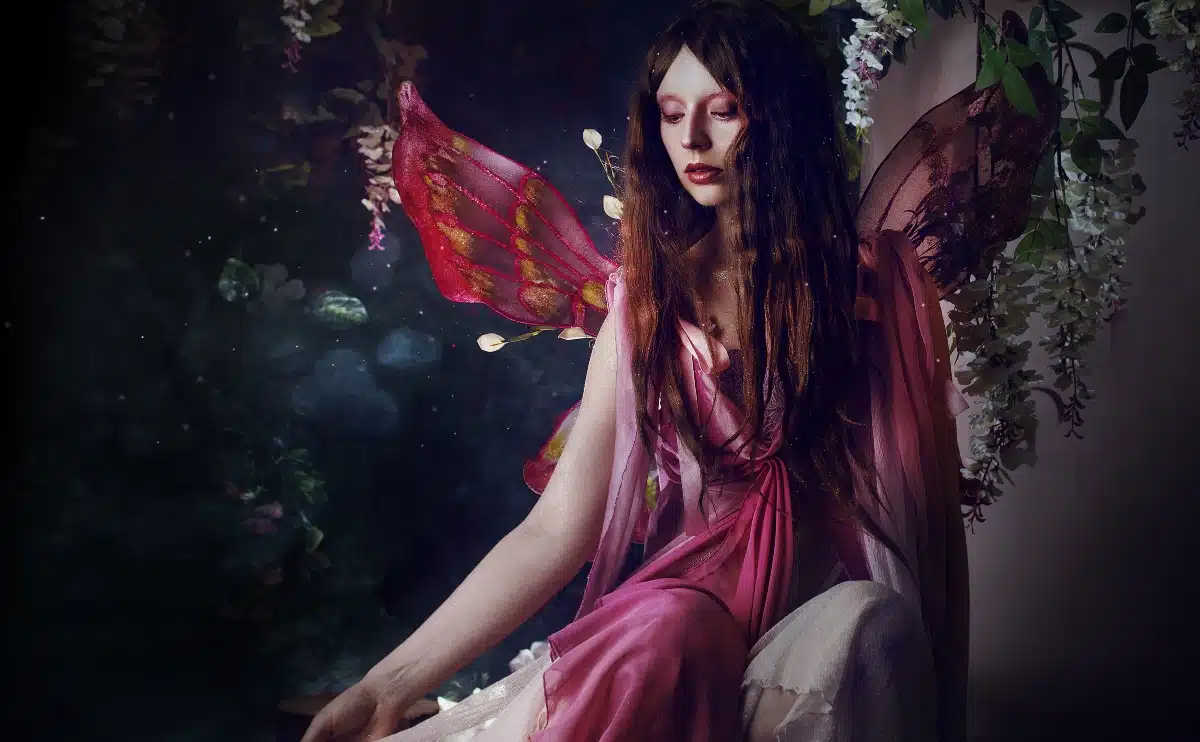
Self-Absorbed Poems About Vanity

Immerse yourself in a collection of the most compelling poems about vanity, carefully curated for your reading interest.
If you’re on a quest for poems that explore the labyrinthine depths of vanity or take a hilarious look at the fleeting glamour of self-importance, our anthology serves up a buffet of literary treats.
In this enchanting collection, we’ve dished out a colorful array of verses that peel back the layers of self-obsession, revealing the quirks and absurdities that make us all human.
So, grab a seat at our poetic banquet, where every stanza is a flavorful morsel of insight, humor, and reflection.
Ready for an exhilarating poetic ride?
Let’s get started!
My #1 Favorite Poem About Vanity
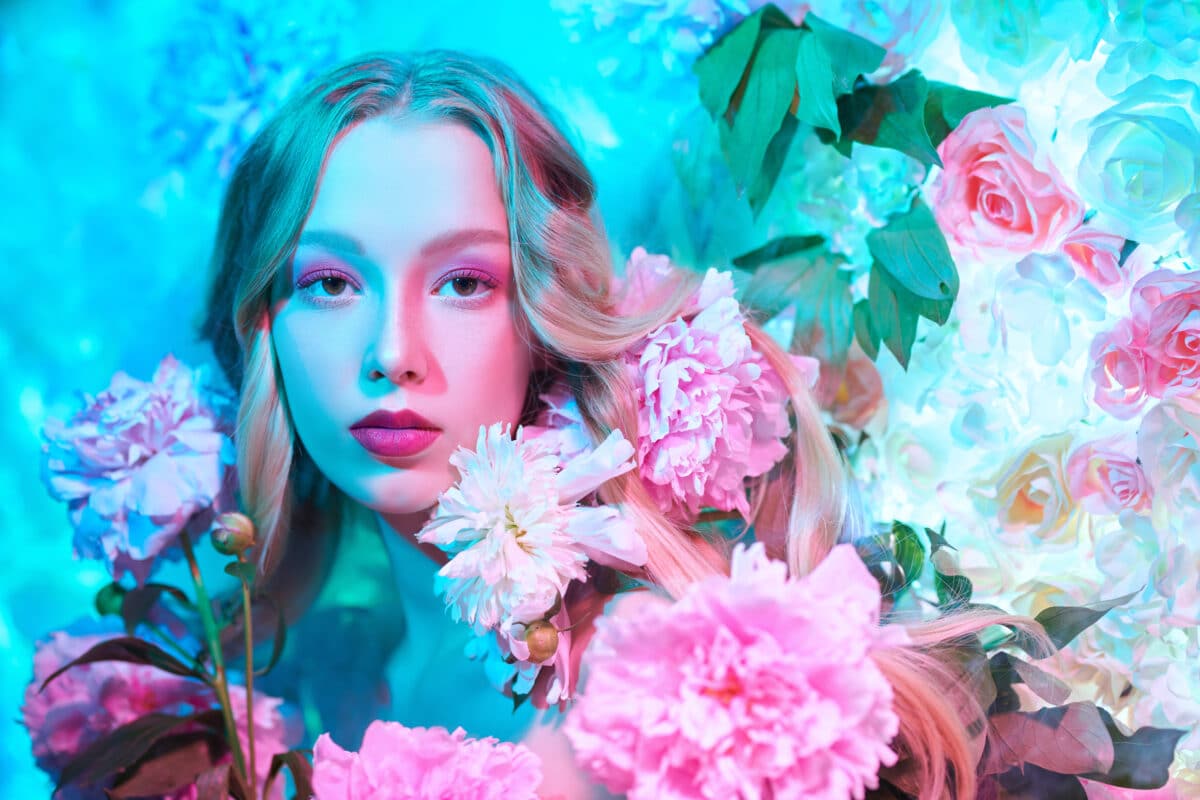
“The Vanity of Existence” by Philip Freneau
To Thyrsis
In youth, gay scenes attract our eyes,
And not suspecting their decay
Life’s flowery fields before us rise,
Regardless of its winter day.
But vain pursuits and joys as vain,
Convince us life is but a dream.
Death is to wake, to rise again
To that true life you best esteem.
So nightly on some shallow tide,
Oft have I seen a splendid show;
Reflected stars on either side,
And glittering moons were seen below.
But when the tide had ebbed away,
The scene fantastic with it fled,
A bank of mud around me lay,
And sea-weed on the river’s bed.
Short Poems About Vanity
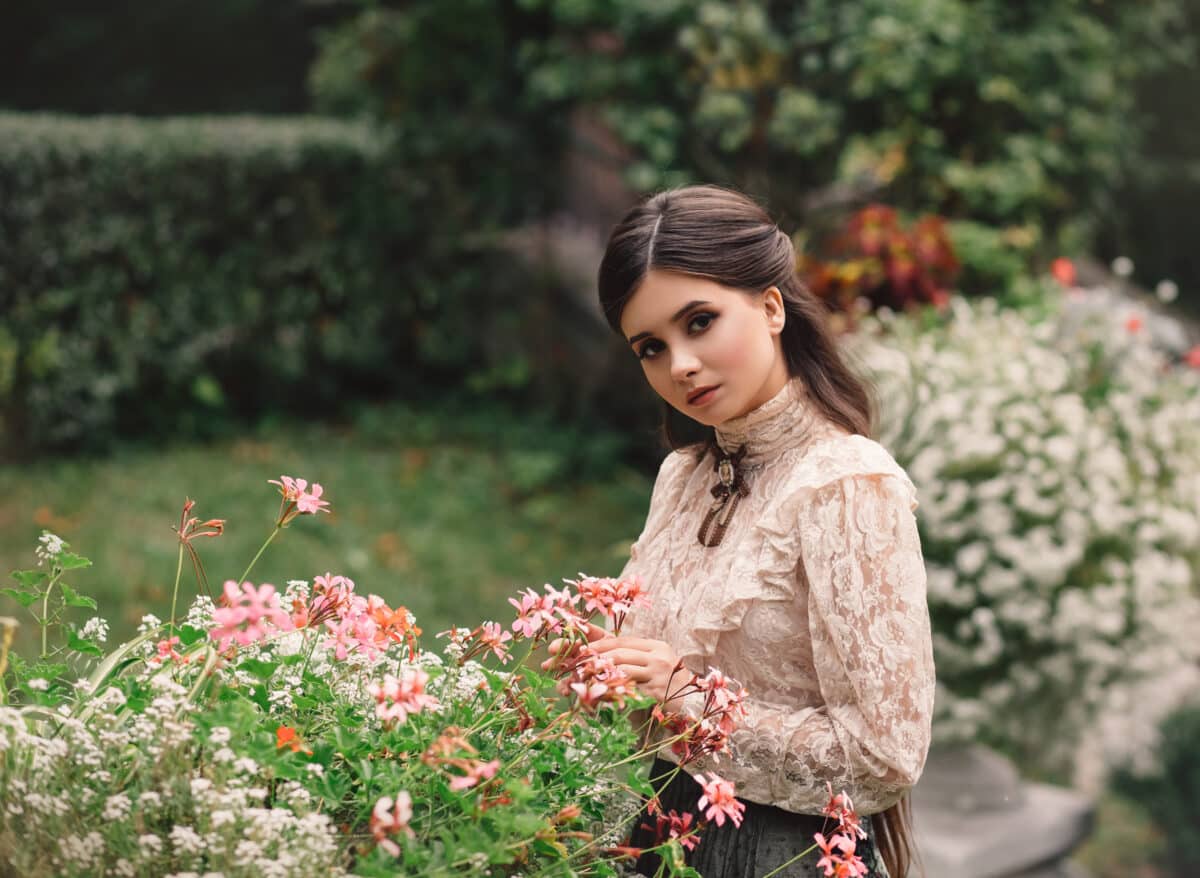
“She I love (alas in vain!)” by Walter Savage Landor
She I love (alas in vain!)
Floats before my slumbering eyes:
When she comes she lulls my pain,
When she goes what pangs arise!
Thou whom love, whom memory flies,
Gentle Sleep! prolong thy reign!
If even thus she soothe my sighs,
Never let me wake again!
“A Prophecy” by Walter Savage Landor
Proud word you never spoke, but you will speak
Four not exempt from pride some future day.
Resting on one white hand a warm wet cheek,
Over my open volume you will say,
“This man loved me!” then rise and trip away.
“For a Preacher” by Countee Cullen
Vanity of vanities,
All is vanity; yea,
Even the rod He flayed you with
Crumbled and turned to clay.
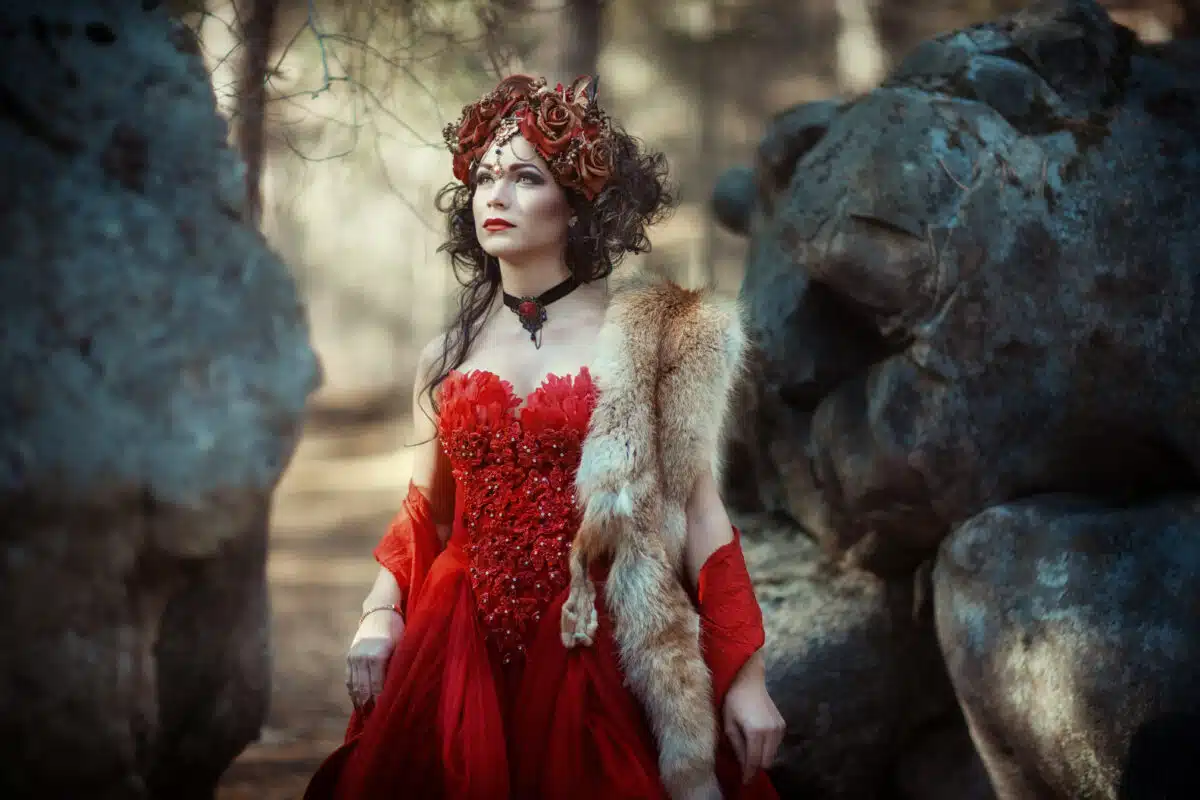
“God’s Blessing.” by Robert Herrick
In vain our labours are whatsoe’er they be,
Unless God gives the benedicite.
“The Vain Jackdaw” by Walter Crane
“Fine feathers,” Jack thought, “make fine fowls;
I’ll be envied of bats & of owls:”
But the peacocks’ proud eyes
Saw through his disguise,
And Jack fled the assembly of fowls.
Borrowed Plumes Are Soon Discovered
“Vain Finding” by Walter De La Mare
Ever before my face there went
Betwixt earth’s buds and me
A beauty beyond earth’s content,
A hope – half memory:
Till in the woods one evening –
Ah! eyes as dark as they,
Fastened on mine unwontedly,
Grey, and dear heart, how grey!
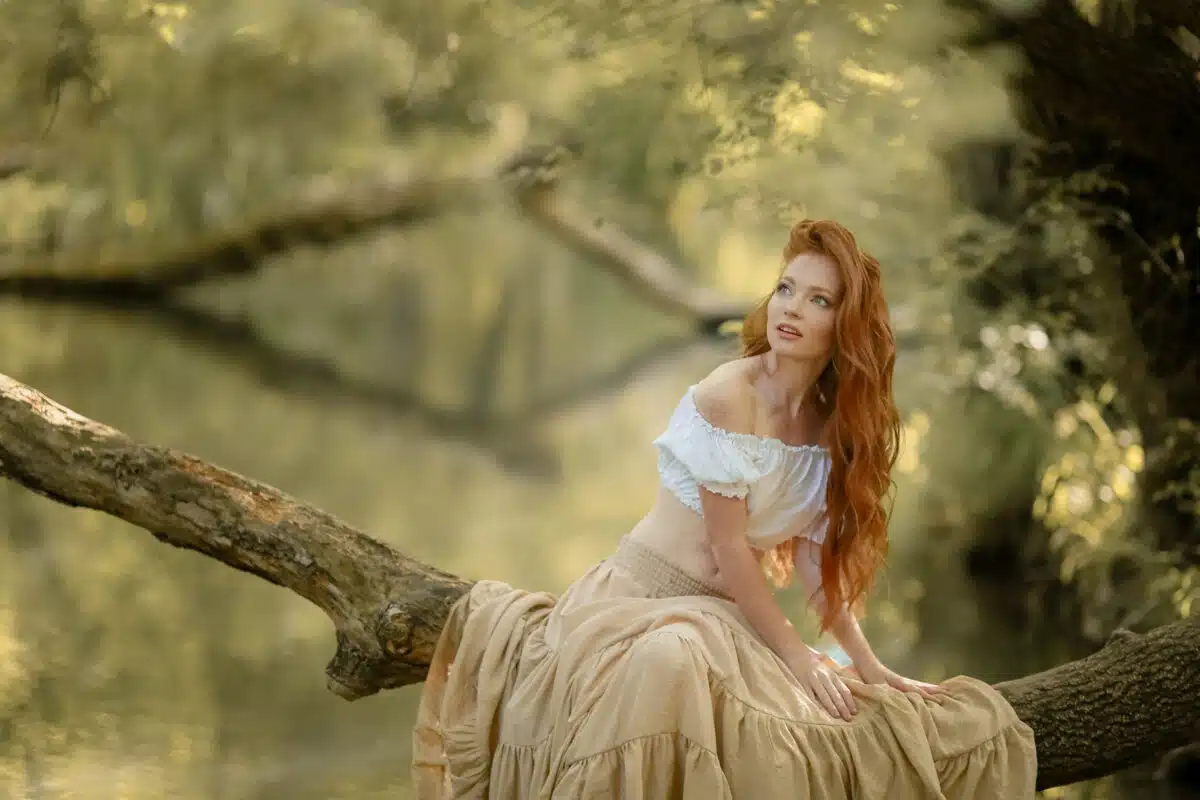
“An Acrostic” by Edgar Allan Poe
Elizabeth it is in vain you say
“Love not”, thou sayest it in so sweet a way:
In vain those words from thee or L. E. L.
Zantippe’s talents had enforced so well:
Ah! if that language from thy heart arise,
Breathe it less gently forth, and veil thine eyes.
Endymion, recollect, when Luna tried
To cure his love, was cured of all beside,
His folly, pride, and passion, for he died.
“Vanity Of Vanities – Sonnet” by Christina Georgina Rossetti
Ah, woe is me for pleasure that is vain,
Ah, woe is me for glory that is past:
Pleasure that bringeth sorrow at the last,
Glory that at the last bringeth no gain!
So saith the sinking heart; and so again
It shall say till the mighty angel-blast
Is blown, making the sun and moon aghast
And showering down the stars like sudden rain.
And evermore men shall go fearfully
Bending beneath their weight of heaviness;
And ancient men shall lie down wearily,
And strong men shall rise up in weariness;
Yea, even the young shall answer sighingly
Saying one to another: How vain it is!
“The Vanity of Human Wishes” by Samuel Johnson
But, scarce observed, the knowing and the bold
Fall in the general massacre of gold;
Wide wasting pest! that rages unconfined,
And crowds with crimes the records of mankind;
For gold his sword the hireling ruffian draws,
For gold the hireling judge distorts the laws;
Wealth heaped on wealth, nor truth nor safety buys,
The dangers gather as the treasures rise.
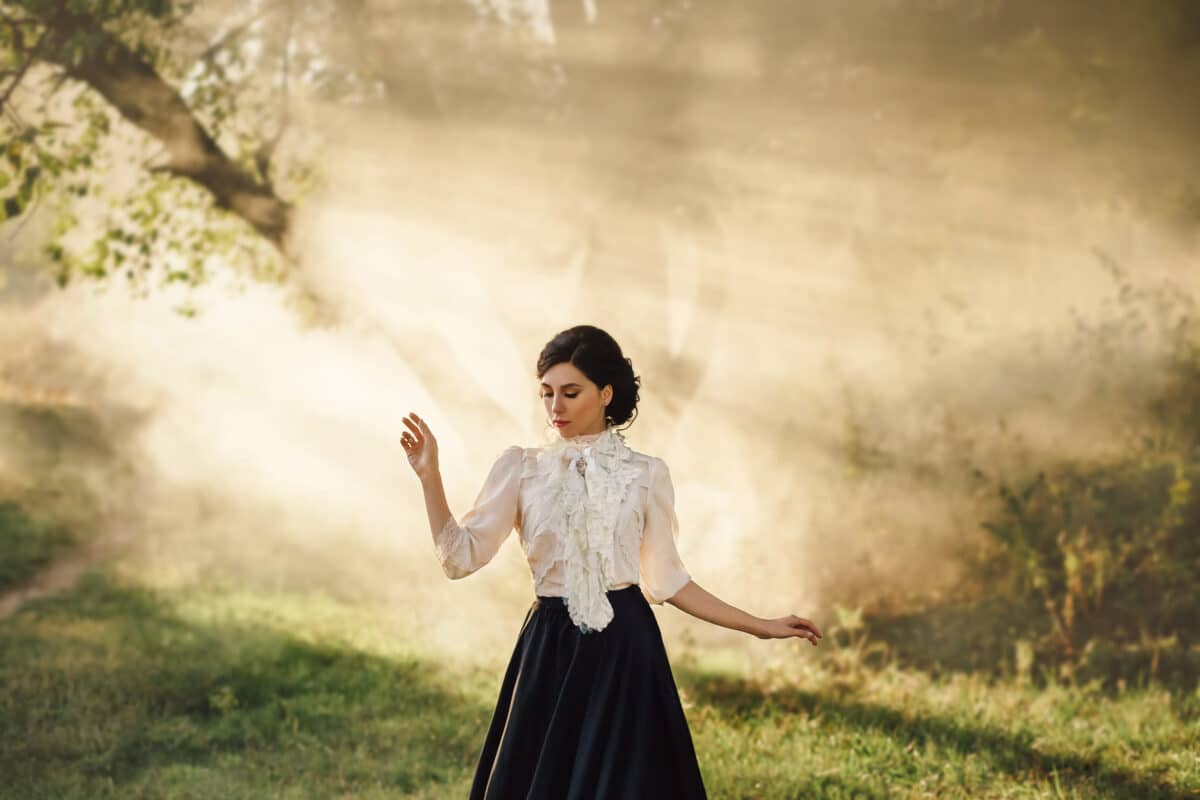
“A Vain Shadow” by Christina Georgina Rossetti
The world,—what a world, ah me!
Mouldy, worm-eaten, gray;
Vain as a leaf from a tree,
As a fading day,
As veriest vanity,
As the froth and the spray
Of the hollow-billowed sea,
As what was and shall not be,
As what is and passes away.
“Poets” by Jessie B. Rittenhouse
Vain is the chiming of forgotten bells
That the wind sways above a ruined shrine.
Vainer his voice in whom no longer dwells
Hunger that craves immortal Bread and Wine.
Light songs we breathe that perish with our breath
Out of our lips that have not kissed the rod.
They shall not live who have not tasted death.
They only sing who are struck dumb by God.
“Song—The Vain Advice” by Catharine Cockburn
Ah, gaze not on those eyes! forbear
That soft enchanting voice to hear:
Not looks of basilisks give surer death,
Nor syrens sing with more destructive breath.
Fly, if thy freedom thou’dst maintain;
Alas! I feel, th’ advice is vain!
A heart, whose safety but in flight does lie,
Is too far lost to have the power to fly.
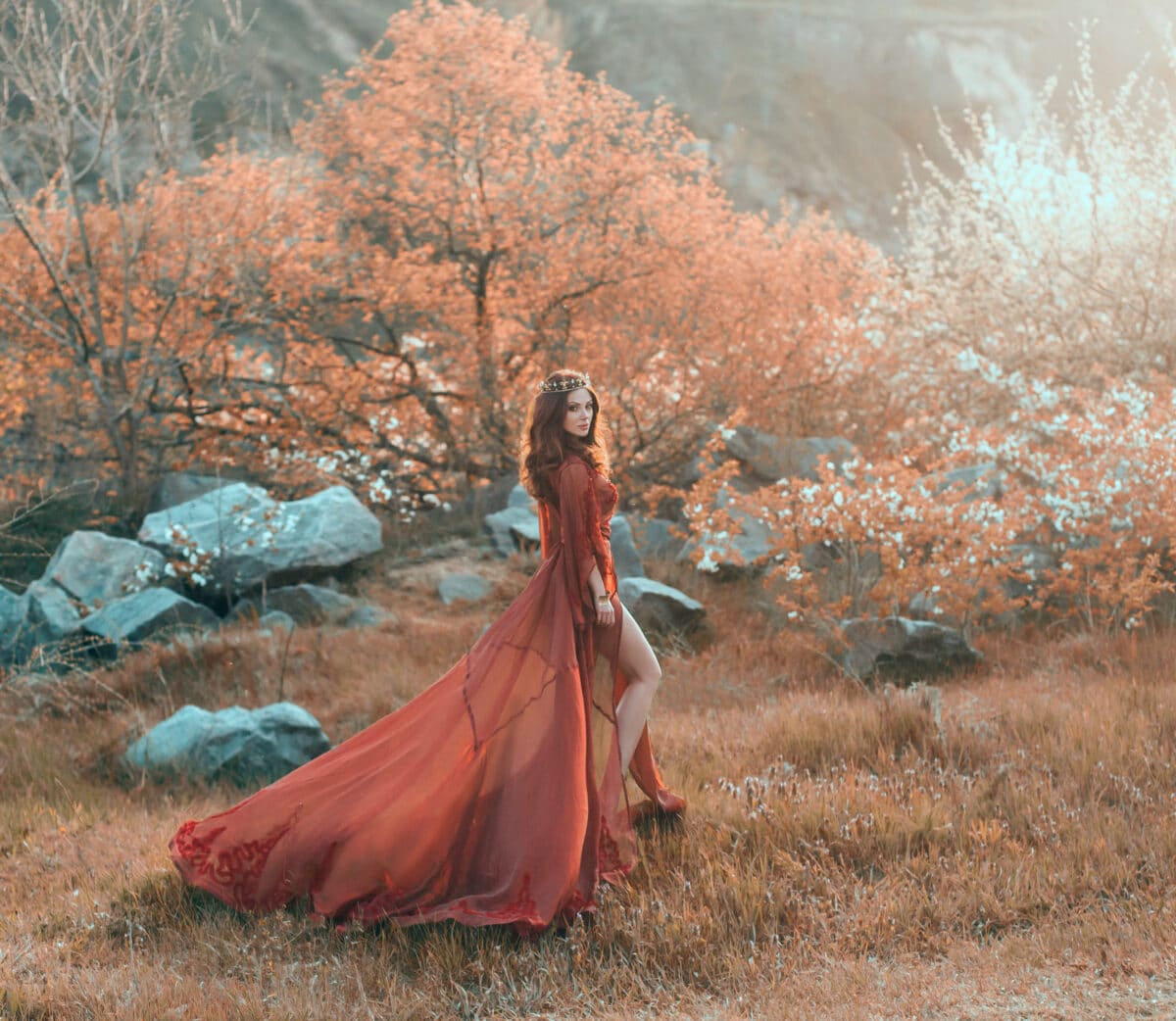
From “The Passers-by” by Dorothy Butts
It is a vanity to make
The little waves on my small lake
Speak from their “deep spring depths.”
What can they have to say,
Blown down the winking bay
The first half of the day,
Blown back all afternoon?
See—in the early moon,
Wind-driven home, they leap
And scramble on the shore—
And sleep.
“A Vain Desire” by Theodore Wratislaw
Dear, did you know how sweet to me
Was every glance of yours, how sweet
The laugh that lights your face with glee,
The passing murmur of your feet,
And seeing perchance with grief how vain
The love that makes you sadly dear
Did grant for my unuttered pain
A whispered word, a smile, a tear
Dropped like a star from Paradise,
Then might I bless my weary state,
Though you behold me from the skies
And I on earth am desolate.
“A Vain Wish” by Philip Bourke Marston
I would not, could I, make thy life as mine;
Only I would, if such a thing might be,
Thou shouldst not, love, forget me utterly;
Yea, when the sultry stars of summer shine
On dreaming woods, where nightingales repine,
I would that at such times should come to thee
Some thought not quite unmix’d with pain, of me,—
Some little sorrow for a soul’s decline.
Yea, too, I would that through thy brightest times,
Like the sweet burden of remember’d rhymes,
That gentle sadness should be with thee, dear;
And when the gates of sleep are on thee shut,
I Would not, even then, it should be mute,
But murmur, shell-like, at thy spirit ’s ear.
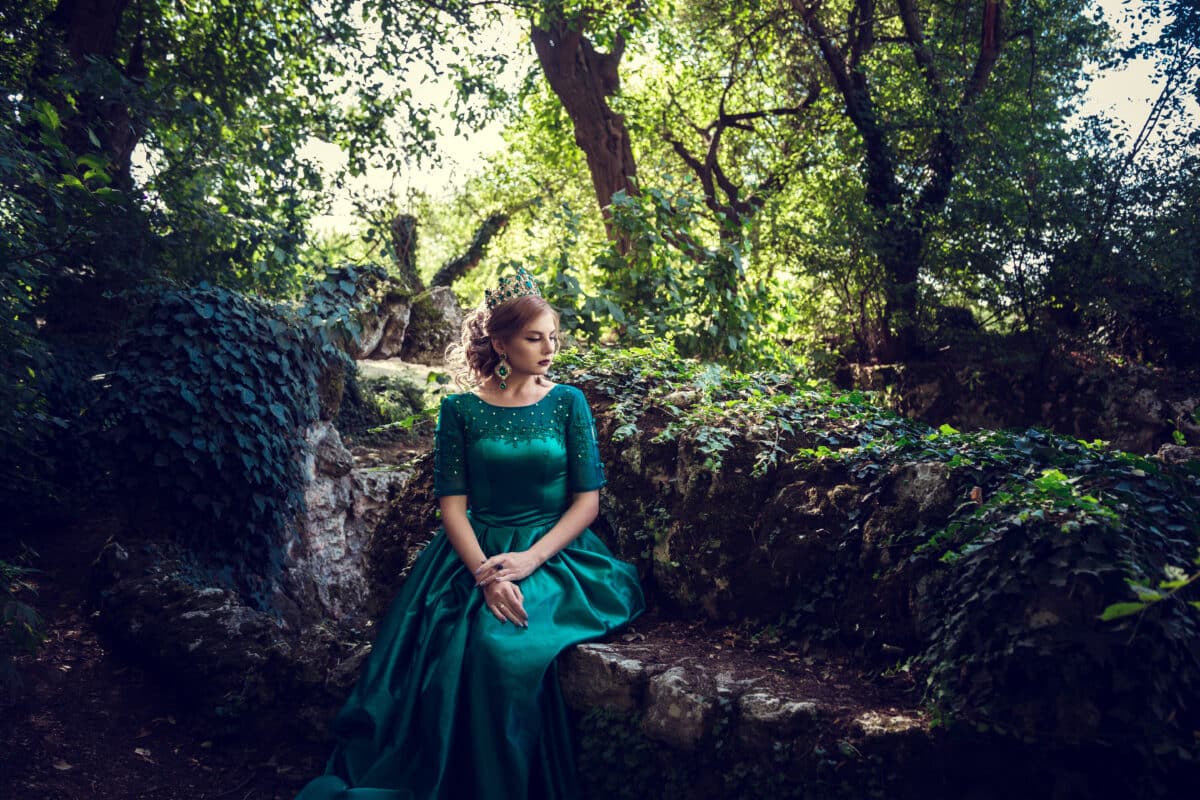
“Weep Not! Sigh Not!” by William James Linton
Weep not! tears must vainly fall,
Though they fall like rain:
Sorrow’s flood shall not recall
Love ’s dear life again.
Vain thy tears,
Vain thy sobs;
As vain heart-throbs
Of lonely years
Since thou Love hast slain.
Sigh not! As a passed wind
Is but sought in vain,
Sighs nor groans may not unbind
Death’s unbroken chain.
Sighs and tears
Nought avail,
Nor cheeks grown pale
In lonely years.
Love comes not again.
“A Little Boy’s Vain Regret” by Edith Matilda Thomas
He was six years old, just six that day,
And I saw he had something important to say
As he held in his hand a broken toy.
He looked in my face for an instant, and then
He said, with a sigh, and a downcast eye,
“If I could live my life over again,
I think I could be a better boy!”
Famous Poems About Vanity

“Vain Hope” by Ernest Christopher Dowson
Sometimes, to solace my sad heart, I say,
Though late it be, though lily-time be past,
Though all the summer skies be overcast,
Haply I will go down to her, some day,
And cast my rests of life before her feet,
That she may have her will of me, being so sweet
And none gainsay!
So might she look on me with pitying eyes,
And lay calm hands of healing on my head:
“Because of thy long pains be comforted;
For I, even I, am Love: sad soul, arise!”
So, for her graciousness, I might at last
Gaze on the very face of Love, and hold Him fast
In no disguise.
Haply, I said, she will take pity on me,
Though late I come, long after lily-time,
With burden of waste days and drifted rhyme:
Her kind, calm eyes, down drooping maidenly,
Shall change, grow soft: there yet is time, meseems,
I said, for solace; though I know these things are dreams
And may not be!
“Vain And Careless.” by Robert von Ranke Graves
Lady, lovely lady,
Careless and gay!
Once when a beggar called
She gave her child away.
The beggar took the baby,
Wrapped it in a shawl,
“Bring her back,” the lady said,
“Next time you call.”
Hard by lived a vain man,
So vain and so proud,
He walked on stilts
To be seen by the crowd.
Up above the chimney pots,
Tall as a mast,
And all the people ran about
Shouting till he passed.
“A splendid match surely,”
Neighbours saw it plain,
“Although she is so careless,
Although he is so vain.”
But the lady played bobcherry,
Did not see or care,
As the vain man went by her
Aloft in the air.
This gentle-born couple
Lived and died apart.
Water will not mix with oil,
Nor vain with careless heart.
“A Song. In Vain You Tell Your Parting Lover” by Matthew Prior
In vain you tell your parting lover
You wish fair winds may waft him over
Alas! what winds can happy prove
That bear me far from what I love?
Alas! what dangers on the main
Can equal those that I sustain
From slighted vows and cold disdain?
Be gentle, and in pity choose
To wish the wildest tempests loose,
That thrown again upon the coast
Where first my shipwreck’d heart was lost,
I may once more repeat my pain,
Once more in dying notes complain
Of slighted vows and cold disdain.
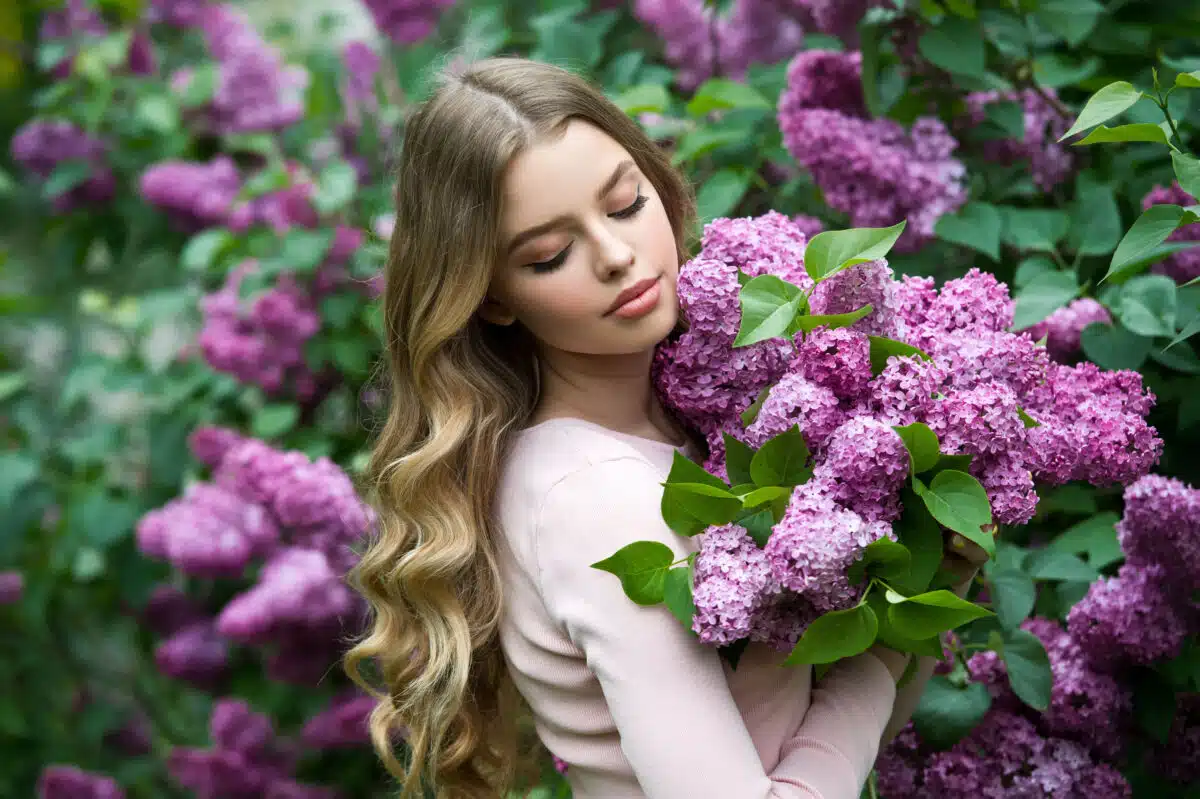
“The High-Born Ladye.” by Thomas Moore
In vain all the Knights to the Underwald wooed her,
Tho’ brightest of maidens, the proudest was she;
Brave chieftains they sought, and young minstrels they sued her,
But worthy were none of the high-born Ladye.
“Whosoever I wed,” said this maid, so excelling,
“That Knight must the conqueror of conquerors be;
“He must place me in halls fit for monarchs to dwell in:–
“None else shall be Lord of the high-born Ladye!
Thus spoke the proud damsel, with scorn looking round her
On Knights and on Nobles of highest degree;
Who humbly and hopelessly left as they found her,
And worshipt at distance the high-born Ladye.
At length came a Knight, from a far land to woo her,
With plumes on his helm like the foam of the sea;
His visor was down–but, with voice that thrilled thro her,
He whispered his vows to the high-born Ladye.
“Proud maiden! I come with high spousals to grace thee,
“In me the great conqueror of conquerors see;
“Enthroned in a hall fit for monarchs I’ll place thee,
“And mine, thou’rt for ever, thou high-born Ladye!”
The maiden she smiled, and in jewels arrayed her,
Of thrones and tiaras already dreamt she;
And proud was the step, as her bridegroom conveyed her
In pomp to his home, of that highborn Ladye.
“But whither,” she, starting, exclaims, “have you, led me?
“Here’s naught but a tomb and a dark cypress tree;
“Is this the bright palace in which thou wouldst wed me?”
With scorn in her glance said the high-born Ladye.
“Tis the home,” he replied, “of earth’s loftiest creatures”–
Then lifted his helm for the fair one to see;
But she sunk on the ground–’twas a skeleton’s features
And Death was the Lord of the high-born Ladye!
“Proud Maisie” by Walter Scott (Sir)
Proud Maisie is in the wood,
Walking so early;
Sweet Robin sits on the bush,
Singing so rarely.
“Tell me, thou bonny bird,
When shall I marry me?”
“When six braw gentlemen
Kirkward shall carry ye.”
“Who makes the bridal bed,
Birdie, say truly?”
“The gray-headed sexton
That delves the grave duly.
“The glow-worm o’er grave and stone
Shall light thee steady;
The owl from the steeple sing,
‘Welcome, proud lady.’ “
“Proud Were Ye, Mountains, When, In Times Of Old” by William Wordsworth
Proud were ye, Mountains, when, in times of old,
Your patriot sons, to stem invasive war,
Intrenched your brows; ye gloried in each scar:
Now, for your shame, a Power, the Thirst of Gold,
That rules o’er Britain like a baneful star,
Wills that your peace, your beauty, shall be sold,
And clear way made for her triumphal car
Through the beloved retreats your arms enfold!
Heard Ye that Whistle? As her long-linked Train
Swept onwards, did the vision cross your view?
Yes, ye were startled; and, in balance true,
Weighing the mischief with the promised gain,
Mountains, and Vales, and Floods, I call on you
To share the passion of a just disdain.
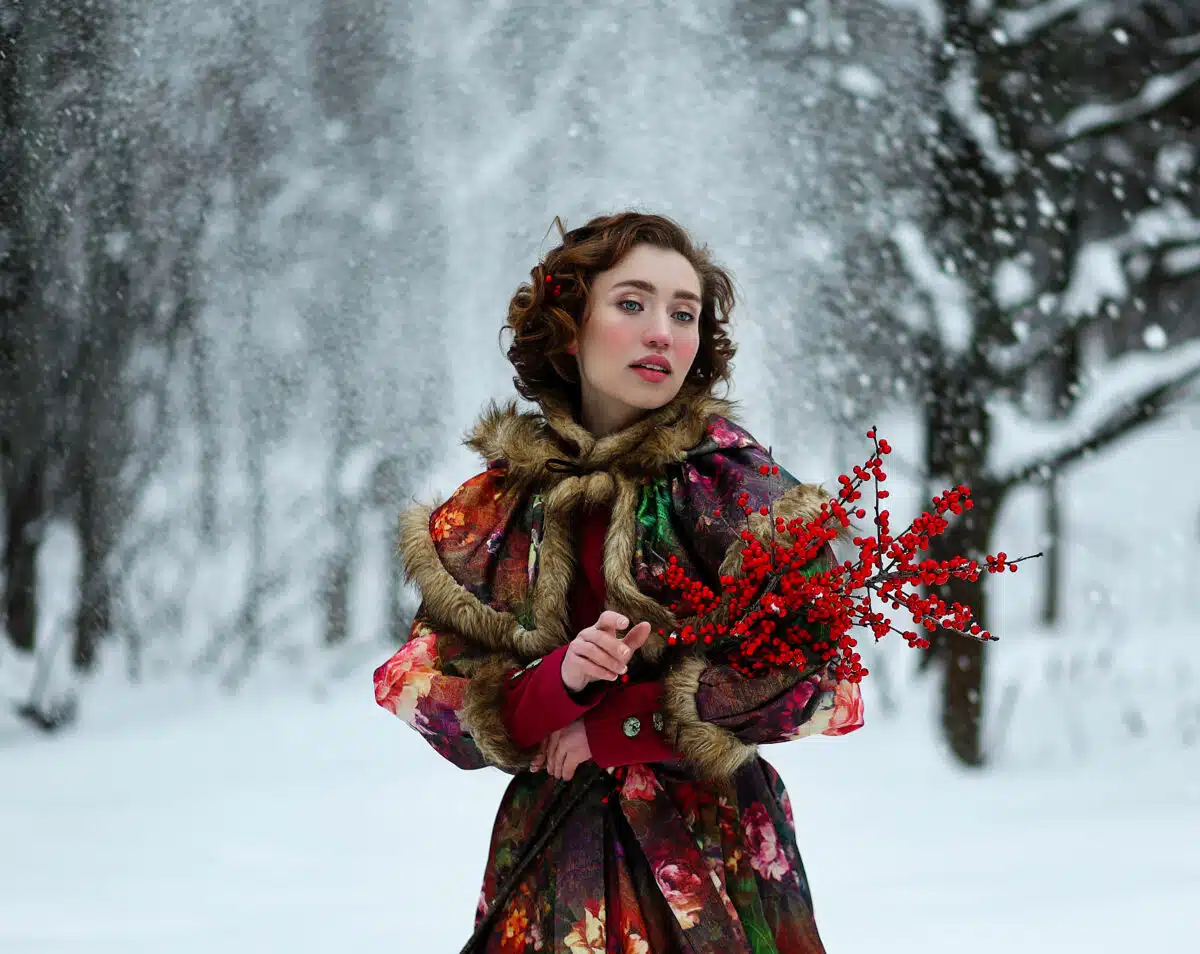
“A Conceit.” by Walter R. Cassels
The Grey-beard Winter sat alone and still,
Locking his treasures in the flinty earth;
And like a miser comfortless and chill,
Frown’d upon pleasure and rejected mirth;
But Spring came, gentle Spring, the young, the fair,
And with her smiles subdued his frosty heart,
So that for very joy to see her there,
His soul, relenting, play’d the lover’s part;
And nought could bring too lovely or too sweet,
To lavish on the bright Evangel’s head;
No flowers too radiant for her tender feet;
No joys too blissful o’er her life to shed.
And thus the land became a Paradise,
A new-made Eden, redolent of joy,
Where beauty blossom’d under sunny skies,
And peaceful pleasure reign’d without alloy.
“The Proud Farmer” by Vachel Lindsay
Into the acres of the newborn state
He poured his strength, and plowed his ancient name,
And, when the traders followed him, he stood
Towering above their furtive souls and tame.
That brow without a stain, that fearless eye
Oft left the passing stranger wondering
To find such knighthood in the sprawling land,
To see a democrat well-nigh a king.
He lived with liberal hand, with guests from far,
With talk and joke and fellowship to spare, –
Watching the wide world’s life from sun to sun,
Lining his walls with books from everywhere.
He read by night, he built his world by day.
The farm and house of God to him were one.
For forty years he preached and plowed and wrought –
A statesman in the fields, who bent to none.
His plowmen-neighbors were as lords to him.
His was an ironside, democratic pride.
He served a rigid Christ, but served him well –
And, for a lifetime, saved the countryside.
Here lie the dead, who gave the church their best
Under his fiery preaching of the word.
They sleep with him beneath the ragged grass . . .
The village withers, by his voice unstirred.
And tho’ his tribe be scattered to the wind
From the Atlantic to the China sea,
Yet do they think of that bright lamp he burned
Of family worth and proud integrity.
And many a sturdy grandchild hears his name
In reverence spoken, till he feels akin
To all the lion-eyed who built the world –
And lion-dreams begin to burn within.
“Vanity Fair” by Ella Wheeler Wilcox
In Vanity Fair, as we bow and smile,
As we talk of the opera after the weather,
As we chat of fashion and fad and style,
We know we are playing a part together.
You know that the mirth she wears, she borrows;
She knows you laugh but to hide your sorrows;
We know that under the silks and laces,
And back of beautiful, beaming faces,
Lie secret trouble and grim despair,
In Vanity Fair.
In Vanity Fair, on dress parade,
Our colours look bright and our swords are gleaming;
But many a uniform’s worn and frayed,
And most of the weapons, despite their seeming,
Are dull and blunted and badly battered,
And close inspection will show how tattered
And stained are the banners that float above us.
Our comrades hate, while they swear to love us;
And robed like Pleasure walks gaunt-eyed Care,
In Vanity Fair.
In Vanity Fair, as we strive for place,
As we rush and jostle and crowd and hurry,
We know the goal is not worth the race –
We know the prize is not worth the worry;
That all our gain means loss for another;
That in fighting for self we wound each other;
That the crown of success weighs hard and presses
The brow of the victor with thorns – not caresses;
That honours are empty and worthless to wear,
In Vanity Fair.
But in Vanity Fair, as we pass along,
We meet strong hearts that are worth the knowing
‘Mong poor paste jewels that deck the throng,
We see a solitaire sometimes glowing.
We find grand souls under robes of fashion,
‘Neath light demeanours hide strength and passion;
And fair fine honour and godlike resistance
In halls of pleasure may have existence;
And we find pure altars and shrines of prayer
In Vanity Fair.
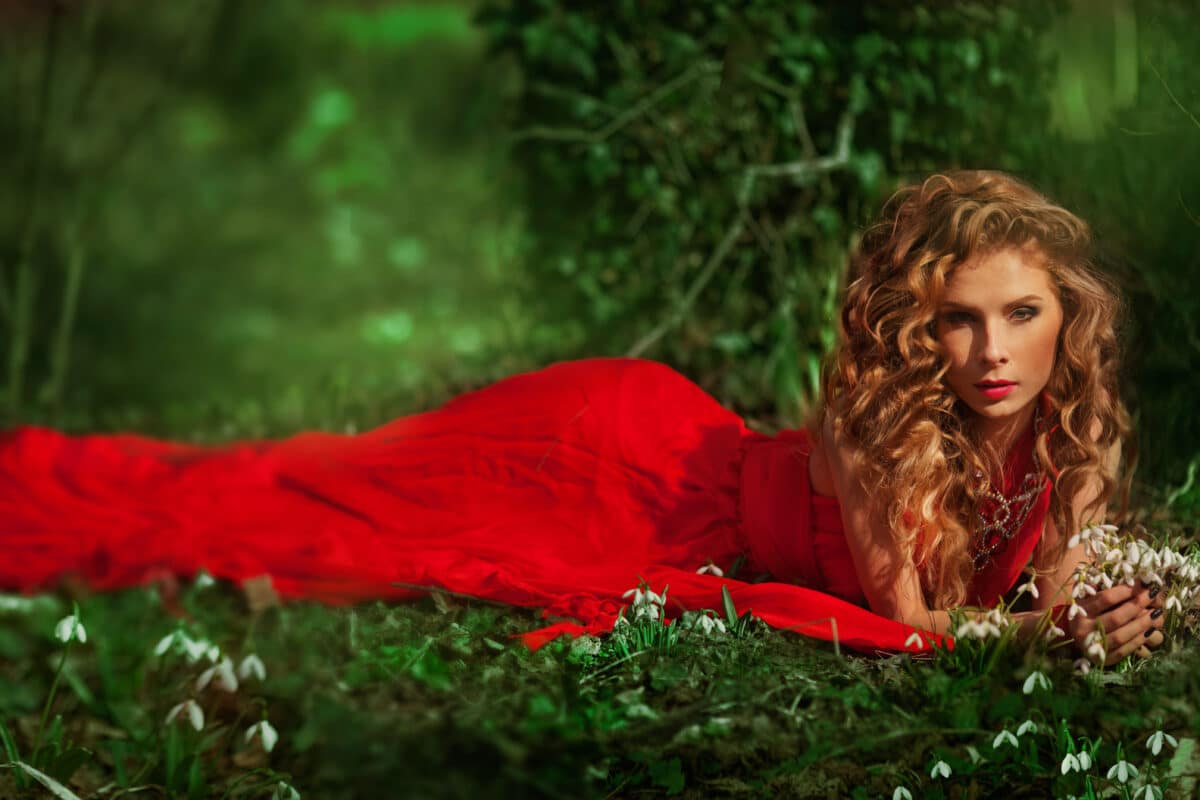
“A Prouder Man Than You” by Henry Lawson
If you fancy that your people came of better stock than mine,
If you hint of higher breeding by a word or by a sign,
If you’re proud because of fortune or the clever things you do,
Then I’ll play no second fiddle: I’m a prouder man than you!
If you think that your profession has the more gentility,
And that you are condescending to be seen along with me;
If you notice that I’m shabby while your clothes are spruce and new,
You have only got to hint it: I’m a prouder man than you!
If you have a swell companion when you see me on the street,
And you think that I’m too common for your toney friend to meet,
So that I, in passing closely, fail to come within your view,
Then be blind to me for ever: I’m a prouder man than you!
If your character be blameless, if your outward past be clean,
While ’tis known my antecedents are not what they should have been,
Do not risk contamination, save your name whate’er you do,
`Birds o’ feather fly together’: I’m a prouder bird than you!
Keep your patronage for others! Gold and station cannot hide
Friendship that can laugh at fortune, friendship that can conquer pride!
Offer this as to an equal, let me see that you are true,
And my wall of pride is shattered: I am not so proud as you!
“Vain Dreams.” by Harriet Annie Wilkins
–“Throughout the day, I walk,
My path o’ershadowed by vain dreams of him.”
–Italian Girl’s Hymn to the Virgin.
Mother, gazing on thy son,
He, thy precious only one,
Look into his azure eyes,
Clearer than the summer skies.
Mark his course; on scrolls of fame
Read his proud ancestral name;
Pause! a cloud that path will dim,
Thou hast dreamt vain dreams of him.
Young bride, for the altar crowned,
Now thy lot with one is bound,
Will he keep each solemn vow?
Will he ever love as now?
Ah! a dreamy shadow lies
In the depths of those bright eyes;
Time will this day’s glory dim,
Thou hast dreamt vain dreams of him.
Sister, has thy brother gone,
To the fields where fights are won;
Oh! it was an hour of pride
When he was last by thy side;
Thou dost see him coming back
In the conqueror’s proud track;
Hush! the bayonets earthward turn,
Dream vain dreams, he’ll not return.
Woman, on the cottage green,
Gazing at the sunset scene,
Now the vintage toil is o’er,
But the gleaner comes no more
Through the fields of burnished corn;
Lo! a peasant’s bier is borne
By the sparkling river’s brim,
Thou hast dreamt vain dreams of him.
Maiden, who in every prayer
Breath’st a name thou dost not bear,
Sing again thy lover’s song;
Yes, he will be back ere long,
Back in all his manhood’s pride,
Back, but with another bride;
Cease those bridal robes to trim,
Thou hast dreamt vain dreams of him.
Earthly idols! how we mould
Sand with fruit and clay with gold!
How we cherish crumbling dust,
Then lament our futile trust!
Saviour, who on earth didst prove
All the agony of love,
Fit us for that brighter shore,
Where they dream vain dreams no more.
“Vanitas! Vanitatum Vanitas!” by Johann Wolfgang von Goethe
My trust in nothing now is placed,
Hurrah!
So in the world true joy I taste,
Hurrah!
Then he who would be a comrade of mine
Must rattle his glass, and in chorus combine,
Over these dregs of wine.
I placed my trust in gold and wealth,
Hurrah!
But then I lost all joy and health,
Lack-a-day!
Both here and there the money roll’d,
And when I had it here, behold,
From there had fled the gold!
I placed my trust in women next,
Hurrah!
But there in truth was sorely vex’d,
Lack-a-day!
The False another portion sought,
The True with tediousness were fraught,
The Best could not be bought.
My trust in travels then I placed,
Hurrah!
And left my native land in haste.
Lack-a-day!
But not a single thing seem’d good,
The beds were bad, and strange the food,
And I not understood.
I placed my trust in rank and fame,
Hurrah!
Another put me straight to shame,
Lack-a-day!
And as I had been prominent,
All scowl’d upon me as I went,
I found not one content.
I placed my trust in war and fight,
Hurrah!
We gain’d full many a triumph bright,
Hurrah!
Into the foeman’s land we cross’d,
We put our friends to equal cost,
And there a leg I lost.
My trust is placed in nothing now,
Hurrah!
At my command the world must bow,
Hurrah!
And as we’ve ended feast and strain,
The cup we’ll to the bottom drain;
No dregs must there remain!
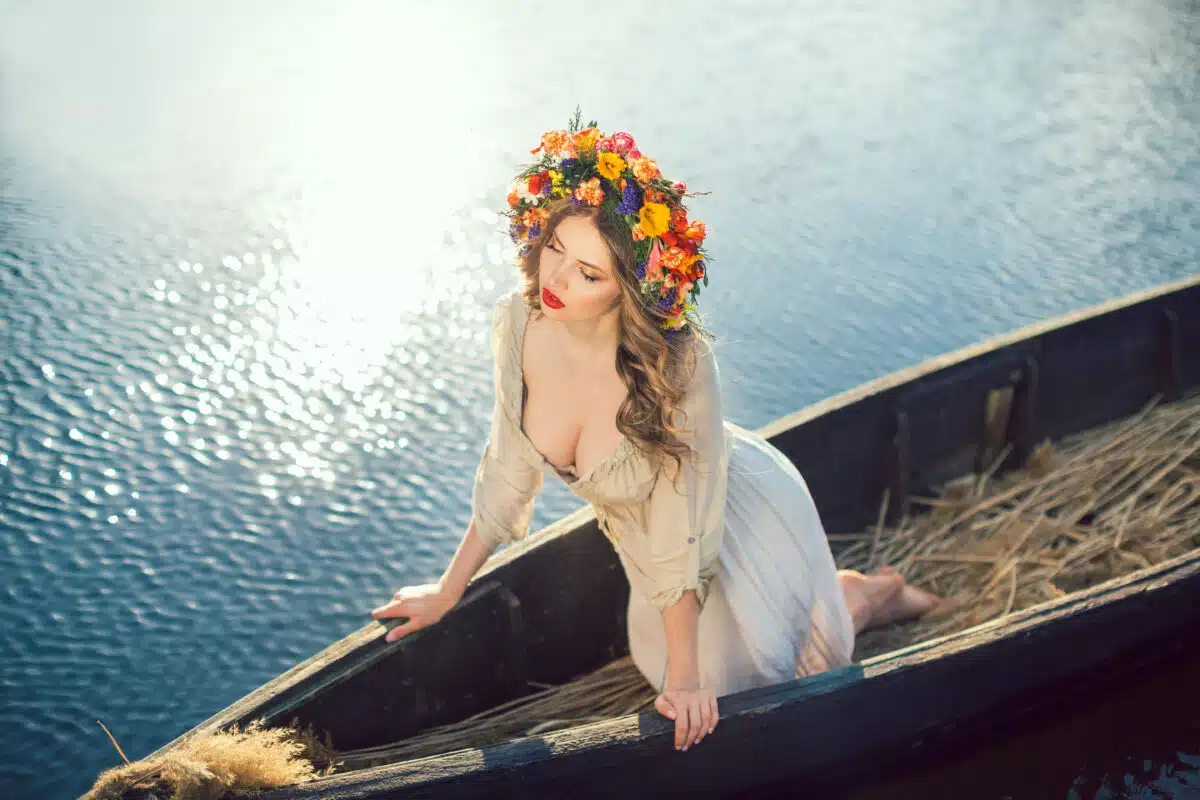
“In Vain.” by Emily Elizabeth Dickinson
I cannot live with you,
It would be life,
And life is over there
Behind the shelf
The sexton keeps the key to,
Putting up
Our life, his porcelain,
Like a cup
Discarded of the housewife,
Quaint or broken;
A newer Sevres pleases,
Old ones crack.
I could not die with you,
For one must wait
To shut the other’s gaze down, —
You could not.
And I, could I stand by
And see you freeze,
Without my right of frost,
Death’s privilege?
Nor could I rise with you,
Because your face
Would put out Jesus’,
That new grace
Glow plain and foreign
On my homesick eye,
Except that you, than he
Shone closer by.
They’d judge us — how?
For you served Heaven, you know,
Or sought to;
I could not,
Because you saturated sight,
And I had no more eyes
For sordid excellence
As Paradise.
And were you lost, I would be,
Though my name
Rang loudest
On the heavenly fame.
And were you saved,
And I condemned to be
Where you were not,
That self were hell to me.
So we must keep apart,
You there, I here,
With just the door ajar
That oceans are,
And prayer,
And that pale sustenance,
Despair!
“Vanity Of The World” by William Cowper
God gives his mercies to be spent;
Your hoard will do your soul no good;
Gold is a blessing only lent,
Repaid by giving others food.
The world’s esteem is but a bribe,
To buy their peace you sell your own;
The slave of a vain-glorious tribe,
Who hate you while they make you known.
The joy that vain amusements give,
Oh! sad conclusion that it brings!
The honey of a crowded hive,
Defended by a thousand stings.
‘Tis thus the world rewards the fools
That live upon her treacherous smiles:
She leads them blindfold by her rules,
And ruins all whom she beguiles.
God knows the thousands who go down
From pleasure into endless woe;
And with a long despairing groan
Blaspheme their Maker as they go.
O fearful thought! be timely wise:
Delight but in a Saviour’s charms,
And God shall take you to the skies,
Embraced in everlasting arms.
“Love’s Vain Expense.” by Michelangelo di Lodovico Buonarroti Simoni
Rendete a gli occhi miei.
Give back unto mine eyes, ye fount and rill,
Those streams, not yours, that are so full and strong,
That swell your springs, and roll your waves along
With force unwonted in your native hill!
And thou, dense air, weighed with my sighs so chill,
That hidest heaven’s own light thick mists among,
Give back those sighs to my sad heart, nor wrong
My visual ray with thy dark face of ill!
Let earth give back the footprints that I wore,
That the bare grass I spoiled may sprout again;
And Echo, now grown deaf, my cries return!
Loved eyes, unto mine eyes those looks restore,
And let me woo another not in vain,
Since how to please thee I shall never learn!
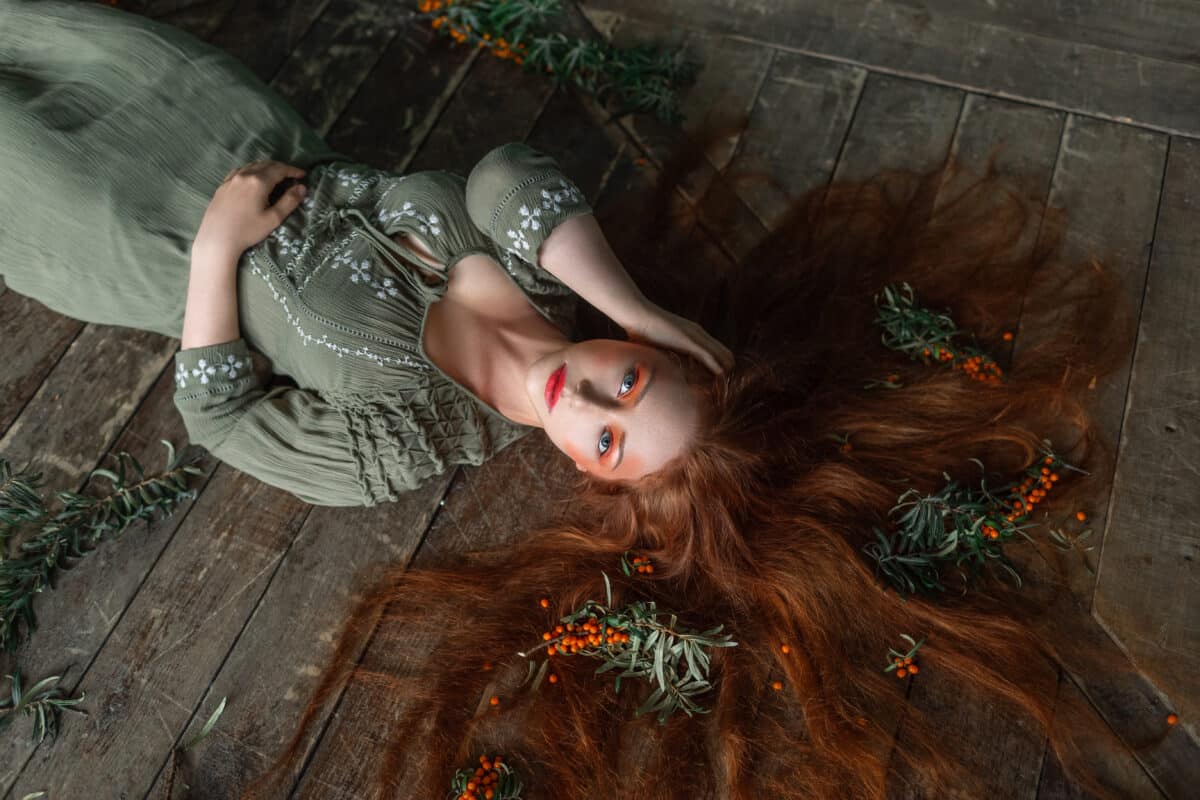
“Vain Resolves” by Ernest Christopher Dowson
I said: “There is an end of my desire:
Now have I sown, and I have harvested,
And these are ashes of an ancient fire,
Which, verily, shall not be quickened.
Now will I take me to a place of peace,
Forget mine heart’s desire;
In solitude and prayer, work out my soul’s release.
“I shall forget her eyes, how cold they were;
Forget her voice, how soft it was and low,
With all my singing that she did not hear,
And all my service that she did not know.
I shall not hold the merest memory
Of any days that were,
Within those solitudes where I will fasten me.”
And once she passed, and once she raised her eyes,
And smiled for courtesy, and nothing said:
And suddenly the old flame did uprise,
And all my dead desire was quickened.
Yea! as it hath been, it shall ever be,
Most passionless, pure eyes!
Which never shall grow soft, nor change, nor pity me.
“In Vain” by Walter De La Mare
I knocked upon thy door ajar,
While yet the woods with buds were grey;
Nought but a little child I heard
Warbling at break of day.
I knocked when June had lured her rose
To mask the sharpness of its thorn;
Knocked yet again, heard only yet
Thee singing of the morn.
The frail convolvulus had wreathed
Its cup, but the faint flush of eve
Lingered upon thy Western wall;
Thou hadst no word to give.
Once yet I came; the winter stars
Above thy house wheeled wildly bright;
Footsore I stood before thy door –
Wide open into night.
“Vanitas Vanitatum, Omnia Vanitas” by Anne Bronte
In all we do, and hear, and see,
Is restless Toil and Vanity.
While yet the rolling earth abides,
Men come and go like Ocean tides;
And ere one generation dies,
Another in its place shall rise;
That, sinking soon into the grave,
Others succeed, like wave on wave;
And as they rise, they pass away.
The sun arises every day,
And, hastening onward to the West,
He nightly sinks, but not to rest:
Returning to the eastern skies,
Again to light us, he must rise.
And still the restless wind comes forth,
Now blowing keenly from the North;
Now from the South, the East, the West,
For ever changing, ne’er at rest.
The fountains, gushing from the hills,
Supply the ever-running rills;
The thirsty rivers drink their store,
And bear it rolling to the shore,
But still the ocean craves for more.
‘Tis endless labour everywhere!
Sound cannot satisfy the ear,
Light cannot fill the craving eye,
Nor riches half our wants supply;
Pleasure but doubles future pain,
And joy brings sorrow in her train;
Laughter is mad, and reckless mirth,
What does she in this weary earth?
Should Wealth, or Fame, our Life employ,
Death comes, our labour to destroy;
To snatch the untasted cup away,
For which we toiled so many a day.
What, then, remains for wretched man?
To use life’s comforts while he can,
Enjoy the blessings Heaven bestows,
Assist his friends, forgive his foes;
Trust God, and keep his statutes still,
Upright and firm, through good and ill;
Thankful for all that God has given,
Fixing his firmest hopes on heaven;
Knowing that earthly joys decay,
But hoping through the darkest day.
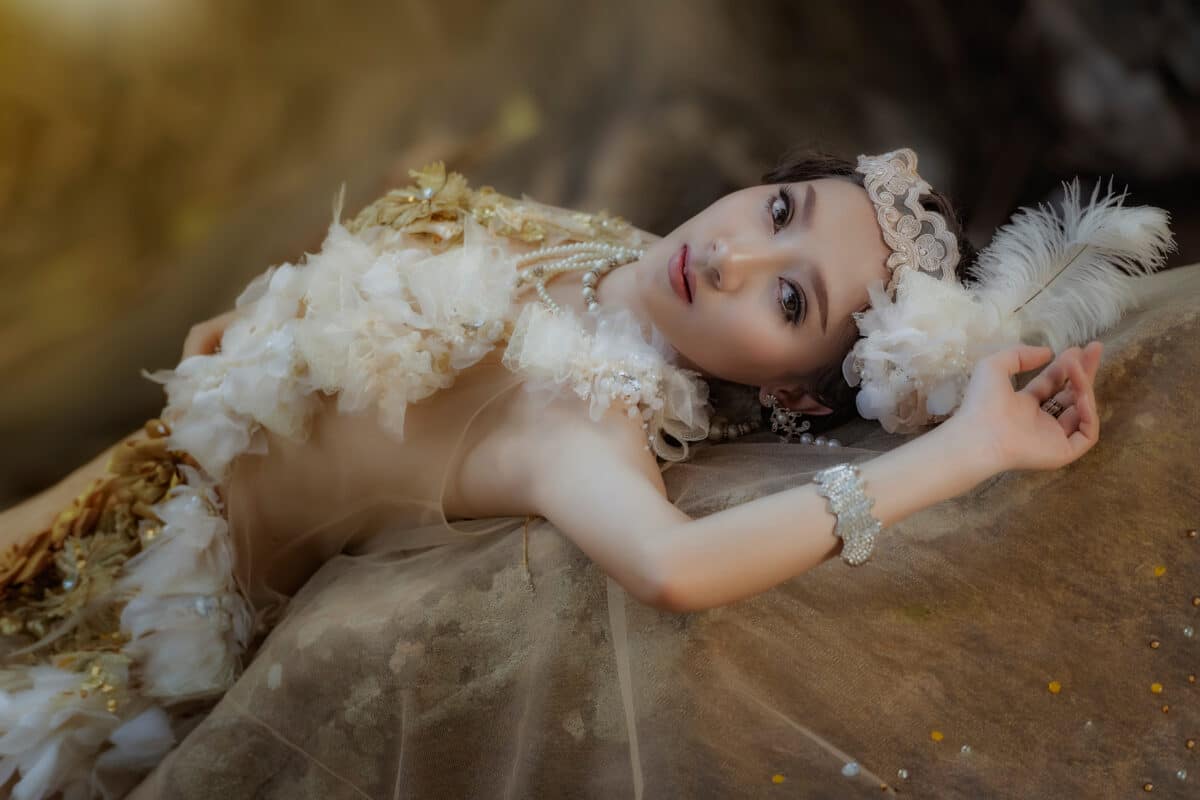
“Vanity Of Vanities” by Robert Fuller Murray
Be ye happy, if ye may,
In the years that pass away.
Ye shall pass and be forgot,
And your place shall know you not.
Other generations rise,
With the same hope in their eyes
That in yours is kindled now,
And the same light on their brow.
They shall see the selfsame sun
That your eyes now gaze upon,
They shall breathe the same sweet air,
And shall reck not who ye were.
Yet they too shall fade at last
In the twilight of the past,
They and you alike shall be
Lost from the world’s memory.
Then, while yet ye breathe and live,
Drink the cup that life can give.
Be ye happy, if ye may,
In the years that pass away,
Ere the golden bowl be broken,
Ere ye pass and leave no token,
Ere the silver cord be loosed,
Ere ye turn again to dust.
‘And shall this be all,’ ye cry,
‘But to eat and drink and die?
If no more than this there be,
Vanity of vanity!’
Yea, all things are vanity,
And what else but vain are ye?
Ye who boast yourselves the kings
Over all created things.
Kings! whence came your right to reign?
Ye shall be dethroned again.
Yet for this, your one brief hour,
Wield your mockery of power.
Dupes of Fate, that treads you down
Wear awhile your tinsel crown
Be ye happy, if ye may,
In the years that pass away.
“The Vanity Of All Worldly Things.” by Anne Bradstreet
As he said vanity, so vain say I,
Oh! vanity, O vain all under Sky;
Where is the man can say, lo, I have found
On brittle Earth a Consolation sound?
What is’t in honour to be set on high?
No, they like Beasts and Sons of men shall dye,
And whil’st they live, how oft doth turn their fate;
He’s now a captive that was King of late.
What is’t in wealth, great Treasures to obtain?
No that’s but labour, anxious care and pain.
He heaps up riches, and he heaps up sorrow,
It’s his to day, but who’s his heir to morrow?
What then? Content in pleasures canst thou find,
More vain then all, that’s but to grasp the wind.
The sensual senses for a time they please.
Mean while the conscience rage, who shall appease?
What is’t in beauty? No that’s but a snare,
They’re foul enough to day, that once were fair.
What is’t in flowring youth, or manly age?
The first is prone to vice, the last to rage.
Where is it then, in wisdom, learning, arts?
Sure if on earth, it must be in those parts:
Yet these the wisest man of men did find
But vanity, vexation of mind.
And he that knowes the most, doth still bemoan
He knows not all that here is to be known.
What is it then, to doe as Stoicks tell,
Nor laugh, nor weep, let things go ill or well.
Such Stoicks are but Stocks such teaching vain,
While man is man, he shall have ease or pain.
If not in honour beauty, age nor treasure,
Nor yet in learning wisdome youth nor pleasure,
Where shall I climb, sound, seek search or find
That Summum bonum which may stay my mind?
There is a path, no vultures eye hath seen,
Where Lion fierce, nor lions whelps have been,
Which leads unto that living Crystal Fount,
Who drinks thereof, the world doth naught account.
The depth & sea have said tis not in me,
With pearl and gold, it shall not valued be.
For Saphire, Onix, Topaz who would change:
Its hid from eyes of men, they count it strange.
Death and destruction the fame hath heard,
But where & what it is, from heaven’s declar’d,
It brings to honour which shall ne’re decay.
It stores with wealth which time can’t wear away.
It yieldeth pleasures far beyond conceit,
And truly beautifies without deceit.
Nor strength, nor wisdome nor fresh youth shall fade,
Nor death shall see, but are immortal made.
This pearl of price, this tree of life, this spring
Who is possessed of, shall reign a King.
Nor change of state, nor cares shall ever see,
But wear his crown unto eternity.
This satiates the Soul, this stays the mind,
And all the rest, but Vanity we find.
“To A Vain Lady.” by George Gordon Byron
1
Ah, heedless girl! why thus disclose
What ne’er was meant for other ears;
Why thus destroy thine own repose,
And dig the source of future tears?
2
Oh, thou wilt weep, imprudent maid,
While lurking envious foes will smile,
For all the follies thou hast said
Of those who spoke but to beguile.
3
Vain girl! thy lingering woes are nigh,
If thou believ’st what striplings say:
Oh, from the deep temptation fly,
Nor fall the specious spoiler’s prey.
4
Dost thou repeat, in childish boast,
The words man utters to deceive?
Thy peace, thy hope, thy all is lost,
If thou canst venture to believe.
5
While now amongst thy female peers
Thou tell’st again the soothing tale,
Canst thou not mark the rising sneers
Duplicity in vain would veil?
6
These tales in secret silence hush,
Nor make thyself the public gaze:
What modest maid without a blush
Recounts a flattering coxcomb’s praise?
7
Will not the laughing boy despise
Her who relates each fond conceit –
Who, thinking Heaven is in her eyes,
Yet cannot see the slight deceit?
8
For she who takes a soft delight
These amorous nothings in revealing,
Must credit all we say or write,
While vanity prevents concealing.
9
Cease, if you prize your Beauty’s reign!
No jealousy bids me reprove:
One, who is thus from nature vain,
I pity, but I cannot love.
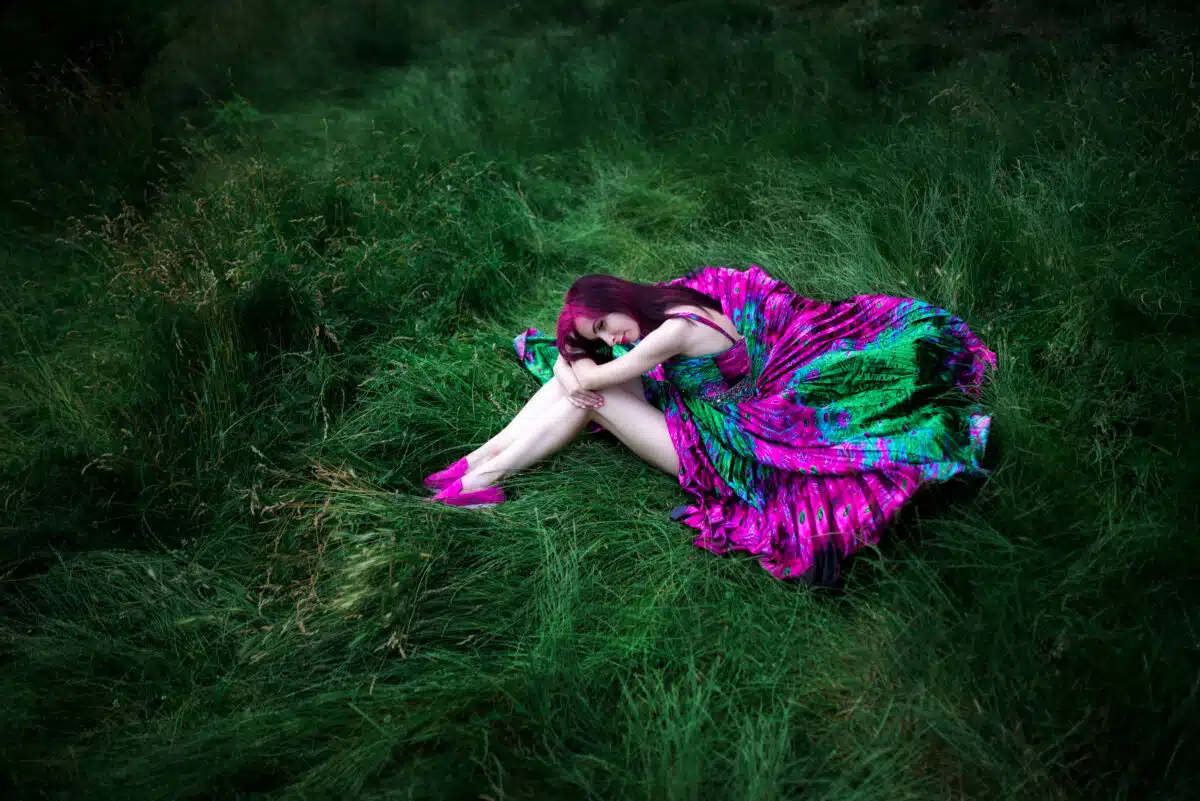
“Vanity” by Gilbert Keith Chesterton
A wan sky greener than the lawn,
A wan lawn paler than the sky.
She gave a flower into my hand,
And all the hours of eve went by.
Who knows what round the corner waits
To smite? If shipwreck, snare, or slur
Shall leave me with a head to lift,
Worthy of him that spoke with her.
A wan sky greener than the lawn,
A wan lawn paler than the sky.
She gave a flower into my hand,
And all the days of life went by.
Live ill or well, this thing is mine,
From all I guard it, ill or well.
One tawdry, tattered, faded flower
To show the jealous kings in hell.
“Days Of Vanity.” by Christina Georgina Rossetti
A dream that waketh,
Bubble that breaketh,
Song whose burden sigheth,
A passing breath,
Smoke that vanisheth, –
Such is life that dieth.
A flower that fadeth,
Fruit the tree sheddeth,
Trackless bird that flieth,
Summer time brief,
Falling of the leaf, –
Such is life that dieth.
A scent exhaling,
Snow waters failing,
Morning dew that drieth,
A windy blast,
Lengthening shadows cast, –
Such is life that dieth.
A scanty measure,
Rust-eaten treasure,
Spending that nought buyeth,
Moth on the wing,
Toil unprofiting, –
Such is life that dieth.
Morrow by morrow
Sorrow breeds sorrow,
For this my song sigheth;
From day to night
We lapse out of sight, –
Such is life that dieth.
“The Vainglorious Oak And The Modest Bulrush” by Guy Wetmore Carryl
A bulrush stood on a river’s rim,
And an oak that grew near by
Looked down with cold hauteur on him,
And addressed him this way: “Hi!”
The rush was a proud patrician, and
He retorted, “Don’t you know,
What the veriest boor should understand,
That ‘Hi’ is low?”
This cutting rebuke the oak ignored.
He returned, “My slender friend,
I will frankly state that I’m somewhat bored
With the way you bow and bend.”
“But you quite forget,” the rush replied,
“It’s an art these bows to do,
An art I wouldn’t attempt if I’d
Such boughs as you.”
“Of course,” said the oak, “in my sapling days
My habit it was to bow,
But the wildest storm that the winds could raise
Would never disturb me now.
I challenge the breeze to make me bend,
And the blast to make me sway.”
The shrewd little bulrush answered, “Friend,
Don’t get so gay.”
And the words had barely left his mouth
When he saw the oak turn pale,
For, racing along south-east-by-south,
Came ripping a raging gale.
And the rush bent low as the storm went past,
But stiffly stood the oak,
Though not for long, for he found the blast
No idle joke.
Imagine the lightning’s gleaming bars,
Imagine the thunder’s roar,
For that is exactly what eight stars
Are set in a row here for!
The oak lay prone when the storm was done,
While the rush, still quite erect,
Remarked aside, “What under the sun
Could one expect?”
And THE MORAL, I’d have you understand,
Would have made La Fontaine blush,
For it’s this: Some storms come early, and
Avoid the rush!
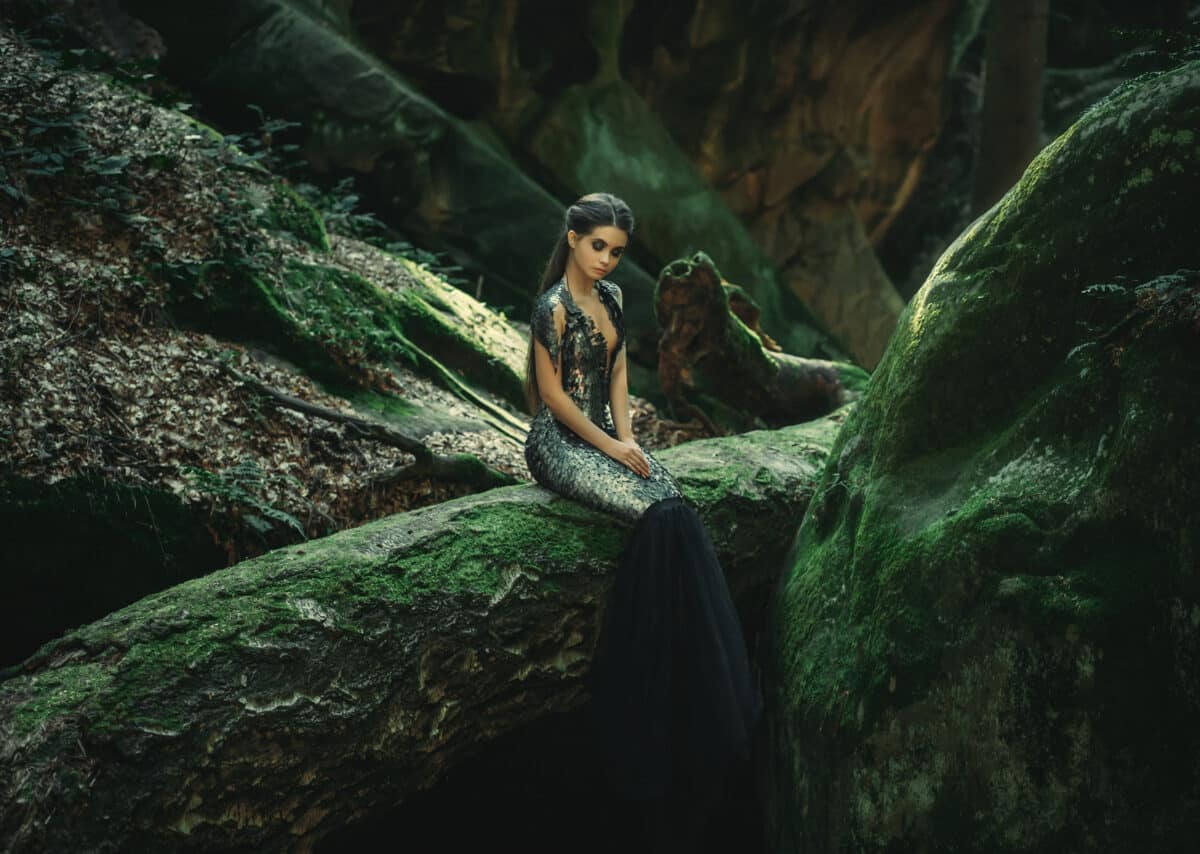
“Vain Gratuities” by Edwin Arlington Robinson
Never was there a man much uglier
In eyes of other women, or more grim:
“The Lord has filled her chalice to the brim,
So let us pray she’s a philosopher,”
They said; and there was more they said of her—
Deeming it, after twenty years with him,
No wonder that she kept her figure slim
And always made you think of lavender.
But she, demure as ever, and as fair,
Almost, as they remembered her before
She found him, would have laughed had she been there;
And all they said would have been heard no more
Than foam that washes on an island shore
Where there are none to listen or to care.
“Vanity Fair” by Frederick Locker-Lampson
“Vanitas vanitatum” has rung in the ears
Of gentle and simple for thousands of years;
The wail still is heard, yet its notes never scare
Either simple or gentle from Vanity Fair.
I often hear people abusing it, yet
There the young go to learn and the old to forget;
The mirth may be feigning, the sheen may be glare,
But the gingerbread’s gilded in Vanity Fair.
Old Dives there rolls in his chariot, but mind
Atra Cura is up with the lacqueys behind;
Joan trudges with Jack—are the Sweethearts aware
Of the trouble that waits them in Vanity Fair?
We saw them all go, and we something may learn
Of the harvest they reap when we see them return.
The tree was enticing; its branches are bare—
Heigho for the promise of Vanity Fair.
That stupid old Dives, once honest enough,
His honesty sold for star, ribbon, and stuff;
And Joan’s pretty face has been clouded with care
Since Jack bought her ribbons at Vanity Fair.
Contemptible Dives! Too credulous Joan!
Yet we all have a Vanity Fair of our own;
My son, you have yours, but you need not despair—
I own I ’ve a weakness for Vanity Fair.
Philosophy halts—wise counsels are vain,
We go, we repent, we return there again;
To-night you will certainly meet with us there—
So come and be merry in Vanity Fair.
“Vain Death” by Archibald T. Strong
All the first night she might not weep
But watched till morning came,
And when she slept at dawn, she heard
The dead man call her name.
The second night she watched and wept
And called on death for grace,
And when she slept before the dawn
She saw the dead man’s face.
The third night through she laughed as one
That knows her way to bliss,
And in the instant ere she slept
She felt the dead man’s kiss.
She rose and faced the flickering fire
(And oh, but she was fair!),
Like a wild witch behind her danced
The shadow of her hair.
She took her penknife from its sheath,
The tender blade she kissed,
And by the firelight’s dying leap
She bared her little wrist.
And where the vein ran large and blue
She cut, once and again,
Yet ere she swooned from life, she knew
Her death had been in vain.
For while life thundered in her ears,
Ere yet her pulse might fail,
Far off across the kindless night
She heard the dead man’s wail,
And knew her doom was one with theirs
That kill the life God gave,
And that she might not leave this earth
Her soul alive to save,
But ay must dwell within that house
As in a living grave,
While he for whom she died might ne’er
Win to her in that place,
But must for ever make his moan
Ranging in agony alone
The trackless void of space.
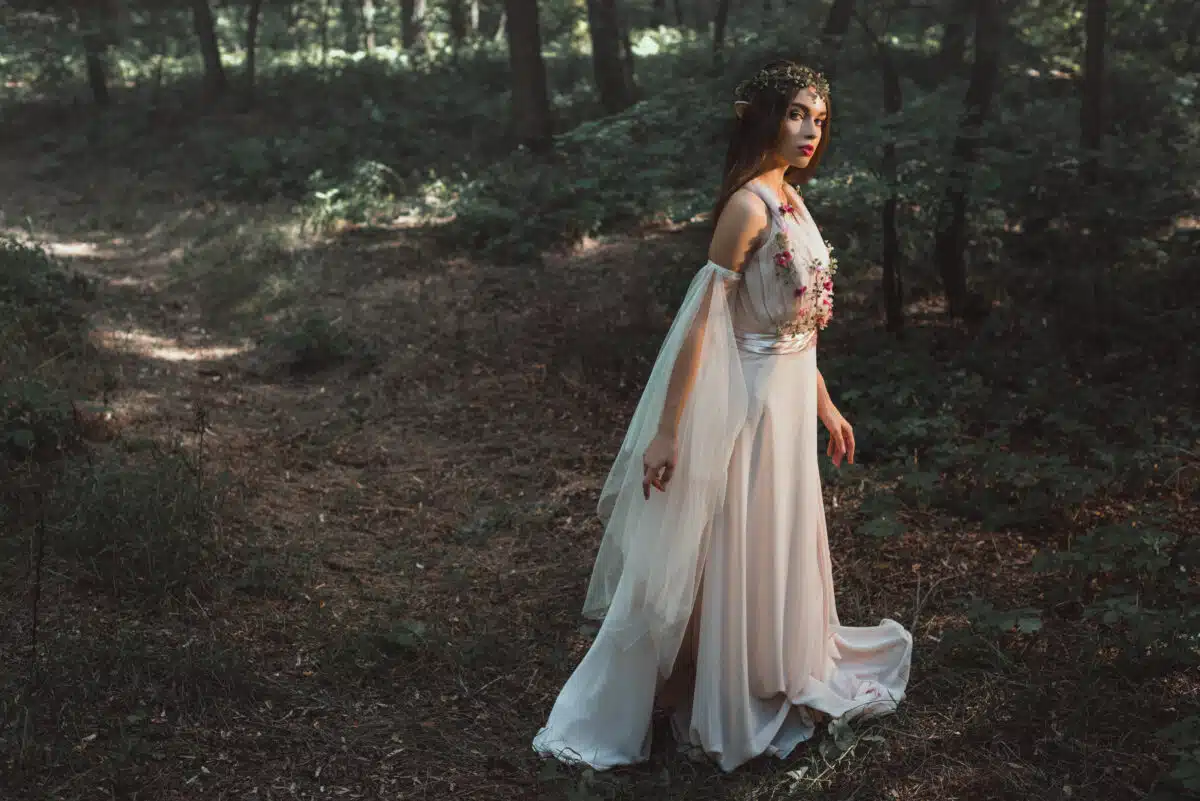
“Vanity of Vanities” by Michael Wigglesworth
Vain, frail, short-liv’d, and miserable man,
Learn what thou art when thy estate is best:
A restless wave o’ the troubled ocean,
A dream, a lifeless picture finely dress’d.
A wind, a flower, a vapor and a bubble,
A wheel that stands not still, a trembling reed,
A trolling stone, dry dust, light chaff and stubble,
A shadow of something but truly nought indeed.
Learn what deceitful toys, and empty things,
This world, and all its best enjoyments be:
Out of the earth no true contentment springs,
But all things here are vexing vanity.
For what is beauty, but a fading flower?
Or what is pleasure, but the devil’s bait,
Whereby he catcheth whom he would devour,
And multitudes of souls doth ruinate.
And what are friends, but mortal men, as we,
Whom death from us may quickly separate:
Or else their hearts may quite estranged be,
And all their love be turned into hate.
And what are riches to be doted on?
Uncertain, fickle, and ensnaring things;
They draw men’s souls into perdition,
And when most needed, take them to their wings.
Ah foolish man! that sets his heart upon
Such empty shadows, such wild fowl as these,
That being gotten will be quickly gone,
And whilst they stay increase but his disease.
As in a dropsy, drinking draughts begets,
The more he drinks, the more he still requires;
So on this world, whoso affection sets,
His wealth’s increase, increaseth his desires.
Oh happy man, whose portion is above,
Where floods, where flames, where foes cannot bereave him
Most wretched man that fixed hath his love
Upon this world, that surely will deceive him.
For what is honor? What is sovereignty,
Whereto men’s hearts so restlessly aspire?
Whom have they crowned with felicity?
When did they ever satisfy desire?
The ear of man with hearing is not fill’d;
To see new lights still coveteth the eye:
The craving stomach, though it may be still’d
Yet craves again without a new supply.
All earthly things man’s cravings answer not,
Whose little heart would all the world contain,
(If all the world should fall to one man’s lot,)
And notwithstanding empty still remain.
The eastern conqueror was said to weep,
When he the Indian ocean did view,
To see his conquest bounded by the deep,
And no more worlds remaining to subdue.
Who would that man in his enjoyment bless,
Or envy him, or covet his estate,
Whose gettings do augment his greediness,
And make his wishes more intemperate.
Such is the wonted and the common guise
Of those on earth that bear the greatest sway;
If with a few the case be otherwise,
They seek a kingdom that abides for aye.
Moreover they, of all the sons of men,
That rule, and are in highest places set,
Are most inclin’d to scorn their bretheren;
And God himself (without great grace) forget.
For as the sun doth blind the gazer’s eyes,
That for a time they nought discern aright:
So honor doth befool and blind the wise,
And their own lustre ’reaves them of their sight.
Great are their dangers, manifold their cares,
Through which, whilst others sleep, they scarcely nap,
And yet are oft surprised unawares,
And fall unwilling into envy’s trap.
The mean mechanic finds his kindly rest,
All void of fear sleepeth the country clown:
When greatest princes often are distress’d
And cannot sleep upon their beds of down.
Could strength or valor men immortalize,
Could wealth or honor keep them from decay,
There were some cause the same to idolize,
And give the lie to that which I do say.
But neither can such things themselves endure,
Without the hazard of a change, one hour,
Nor such as trust in them can they secure,
From dismal days, or death’s prevailing power.
If beauty could the beautiful defend
From death’s dominion, then fair Absalom
Had not been brought to such a shameful end:
But fair and foul unto the grave must come.
If wealth or sceptres could immortal make
Then wealthy Crœsus, wherefore art thou dead?
If warlike force, which makes the world to quake,
Then why is Julius Cæsar perished?
Where are the Scipios’ thunder bolts of war?
Renowned Pompey, Cæsar’s enemy?
Stout Hannibal, Rome’s terror known so far?
Great Alexander, what’s become of thee?
If gifts and bribes death’s favor might but win,
If power, if force, or threat’nings might it fray,
All these, and more had still surviving been:
But all are gone, for death will have no nay.
Such is this world with all her pomp and glory;
Such are the men whom worldly eyes admire,
Cut down by time, and now become a story,
That we might after better things aspire.
Go boast thyself of what thy heart enjoys,
Vain man! Triumph in all thy worldly bliss:
Thy best enjoyments are but trash and toys,
Delight thyself in that which worthless is.
Omnia prætereunt præter amare Deum.
“The World Vanity” by M. Thorn
Who shall profoundly way or scan
The assured state of man,
Shall well perceiue by reason than,
That where is no stabilitie,
Remaineth nought but vanitie.
For what estate is there, think ye,
Throughly content with his degre?
Wherby we maie right clerely see
That in this vale of miserie
Remaineth nought but vanitie.
The great men wishe the meane estate,
Meane men again their state doe hate;
Old men thinke children fortunate,
A boy a man would fainest be:
Thus wandreth man in vanitie.
The countrey man doth daily swell
With great desire in court to dwel;
The courtier thinks hym nothyng well,
Till he from court in countrey be,
He wandreth so in vanitie.
If thou haue lands or goods great store,
Consider thou thy charge the more,
Since thou must make account therefore:
Thei are not thine, but lent to thee,
And yet thei are but vanitie.
If thou be strong or faire of face,
Sicknes or age doth both disgrace;
Then be not proude in any case:
For how can there more folly be,
Then for to bost of vanitie?
Now finally, be not infect
With worldly cares; but haue respect
How God rewardeth his true electe
With glorious felicitie,
Free from all worldly vanitie.
“The Vanity of Riches” by Samuel Daniel
Wel were it with mankinde, if what the most
Did like were best; but ignorance will liue
By others’ square, as by example lost:
And man to man must th’ hand of feruour giue,
That none can fall alone at their owne cost;
And al because men iudge not, but beleeue.
For what poore bounds haue they whom but the earth?
What is their end whereto their care attaines,
When the thing got reliues not, but confounds,
Hauing but trauell to succeed their paines?
What ioy hath he of liuing, that propounds
Affliction but his end, and griefe his gaines?
Gath’ring, incroching, wresting, ioyning to,
Destroying, building, decking, furnishing,
Repayring, altring, and so much adoe,
To his soule’s toile and bodie’s trauelling:
And all this dooth he, little knowing who
Fortune ordaines to haue th’ inheriting.
And his faire house, rais’d hie in enuie’s eie,
Whose pillars rear’d, perhaps, on bloud and wrong,
The spoyles and pillage of iniquitie,
Who can assure it to continue long?
If rage spar’d not the walles of pietie,
Shall the profanest piles of sinne keepe strong?
How many prowd aspiring pallaces
Haue we knowne made the prey of wrath and pride,
Leuell’d with the earth, left to forgetfulnes,
Whilst titlers their pretended rights deride,
Or ciuil tumults, or an orderlesse
Order, pretending change of some strong side!
Then where is that prowde title of thy name,
Written in yce of melting vanitie?
Where is thine heire left to possesse the same?
Perhaps not so well as in beggarie:
Something may rise to be beyond the shame
Of vile and vnreguarded pouerty.
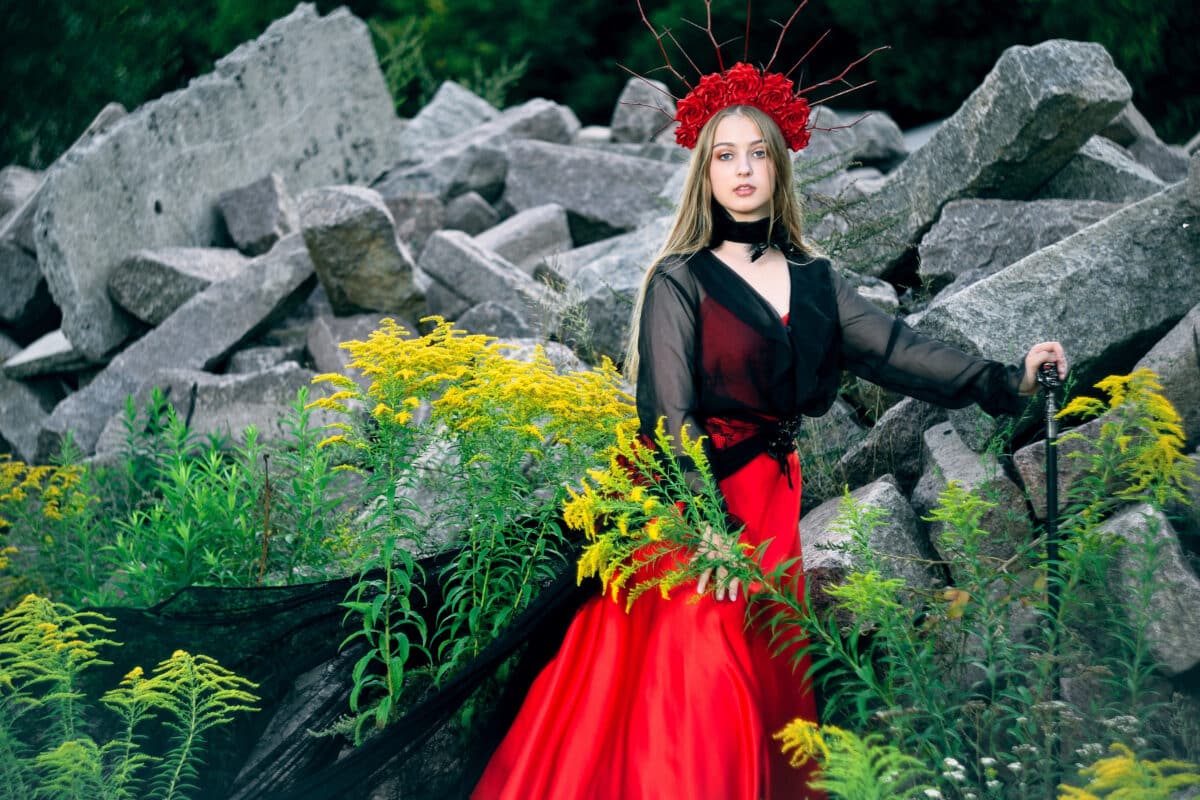
“The Vanity of Fame” by Samuel Daniel
Alas! poore fame, in what a narrow roome
As an incaged parrot, art thou pent
Here amongst vs, where euen as good be dumbe
As speake, and to be heard with no attent?
How can you promise of the time to come,
When as the present are so negligent?
Is this the walke of all your wide renowne,
This little point, this scarce discerned ile,
Thrust from the world, with whome our speech vnknowne
Made neuer any traffic of our stile?
And is this all, where all this care is sowne,
T’ inchant your fame to last so long a while?
And for that happier tongues haue wonne so much,
Thinke you to make your barbarous language such?
Poore narrow limites for so mighty paines,
That cannot promise any forraine vent!
And yet if here to all your wondrous vaines
Were generally known, it might content:
But loe, how many reades not or disdaines
The labours of the chief and excellent!
“Whims of the Amorous” by Heinrich Heine
Upon the hedge the beetle sits sadly,
He has fallen in love with a ladyfly madly.
“Oh, fly of my soul, ’tis thou alone
Art the wife I have chosen to be my own!
“Oh, marry me, and be not cold,
For I have a belly of glistening gold.
“My back is a mass of glory and show;
There rubies glitter, there emeralds glow.”
“Oh, would that I were a fool just now!
I’d never marry a beetle, I vow.
“I care not for emeralds, rubies, or gold;
I know that no happiness riches enfold.
“’Tis toward the ideal my thought soars high,
For I am in truth a haughty fly.”
The beetle flew off, with a heart like to break;
The fly went away, a bath to take.
“Oh, what has become of my maid, the bee,
That she, when I’m washing, may wait on me;
“That she may stroke my soft hair outside?
For I am now a beetle’s bride.
“In truth, a splendid party I’ll give,
For handsomer beetle never did live.
“His back is a mass of glory and show;
There rubies glitter, there emeralds glow.
“His belly is golden, and noble each feature;
With envy will burst full many a creature.
“Make haste, Miss Bee, and dress my hair;
And lace my waist; use perfumes rare;
“With attar of roses rub me o’er,
And lavender oil on my feet then pour—
“That I may not stink, or nastily smell,
When I in my bridegroom’s arms shall dwell.
“Already are flitting the dragonflies blue,
As maids of honor to wait on me too.
“Into my bridal garland they’ll twine
The blossoms white of the orange so fine.
“Full many musicians are asked to the place,
And singers as well, of the grasshopper race.
“The bittern, drone, hornet, and gadfly all come,
To blow on the trumpet and beat the drum.
“They’re all to strike up for the glad wedding-feast.
The gay-wingèd guests, from greatest to least,
“Are coming in families dapper and brisk,
The commoner insects among them frisk.
“The grasshoppers, wasps, and the aunts and the cousins
Are coming, while trumpets are blowing by dozens.
“The pastor, the mole, in black, dignified state,
Has also arrived, and the hour grows late.
“The bells are all sounding ding-dong, ding-a-dong—
But where’s my dear bridegroom ling’ring so long?”
Ding-dong, ding-a-dong, sound the bells all the day,
The bridegroom, however, has flown far away.
The bells are all sounding ding-dong, ding-a-dong—
“But where’s my dear bridegroom ling’ring so long?”
The bridegroom has meanwhile taken his seat
On a distant dunghill, enjoying the heat.
Seven years there sits he, until his forgotten
Poor bride has long been dead and rotten.
“Vain Hiding” by Margaret Widdemer
I said, “I shall find peace now, for my love has never been
Here in the little room, in the quiet place;
The walls shall not quiver around me, nor fires begin,
And I shall forget his voice and perhaps his face,
And be still for a little space.”
But the thought of my love beat wild against the silencing doors
There in the quivering air, in the throbbing room,
Till his step strode quick and light against the echoing floors,
And the light of his voice was there for the placid gloom
And his presence a shed perfume.
So I said, “There is no peace more, for the place can never be
Where the thought of him cannot come, cannot burn me through,
For the thought of his touch is my flesh, and his voice is a voice in me,
And what is the use of all you may say and do
When love is a part of you?”

“The Golden Vanity” by Arthur Quiller-Couch
I
A ship I have got in the North Country
And she goes by the name of the Golden Vanity,
O I fear she’ll be taken by a Spanish Ga-la-lee,
As she sails by the Low-lands low.
II
To the Captain then upspake the little Cabin-boy,
He said, ‘What is my fee, if the galley I destroy?
The Spanish Ga-la-lee, if no more it shall anoy,
As you sail by the Low-lands low.’
III
‘Of silver and of gold I will give to you a’store;
And my pretty little daughter that dwelleth on the shore,
Of treasure and of fee as well, I’il give to thee galore,
As we sail by the Low-lands low.’
IV
Then they row’d him up tight in a black bull’s skin,
And he held all in his hand an augur sharp and thin,
And he swam until he came to the Spanish Gal-a-lin,
As she lay by the Low-lands low.
V
He bored with his augur, he bored once and twice,
And some were playing cards, and some were playing dice,
When the water flowèd in it dazzled their eyes,
And she sank by the Low-lands low.
VI
So the Cabin-boy did swim all to the larboard side,
Saying ‘Captain! take me in, I am drifting with the tide!’
‘I will shoot you! I will kill you!’ the cruel Captain cried,
‘You may sink by the Low-lands low.’
VII
Then the Cabin-boy did swim all to the starboard side,
Saying, ‘Messmates, take me in, I am drifting with the tide!’
Then they laid him on the deck, and he closed his eyes and died,
As they sailed by the Low-lands low.
VIII
They sew’d his body tight in an old cow’s hide,
And they cast the gallant cabin-boy out over the ship side,
And left him without more ado to drift with the tide,
And to sink by the Low-lands low.
“In Vain” by Rose Terry Cooke
Put every tiny robe away!
The stitches all were set with tears,
Slow, tender drops of joys; to-day
Their rain would wither hopes or fears:
Bitter enough to daunt the moth
That longs to fret this dainty cloth.
The filmy lace, the ribbons blue,
The tracery deft of flower and leaf,
The fairy shapes that bloomed and grew
Through happy moments all too brief.
The warm, soft wraps. O God! how cold
It must be in that wintry mould!
Fold carefully the broidered wool:
Its silken wreaths will ne’er grow old,
And lay the linen soft and cool
Above it gently, fold on fold.
So lie the snows on that soft breast,
Where mortal garb will never rest.
How many days in dreamed delight,
With listless fingers, working slow,
I fashioned them from morn till night
And smiled to see them slowly grow.
I thought the task too late begun;
Alas! how soon it all was done!
Go lock them in a cedar chest,
And never bring me back the key!
Will hiding lay this ghost to rest,
Or the turned lock give peace to me?
No matter!—only that I dread
Lest other eyes behold my dead.
I would have laid them in that grave
To perish too, like any weed;
But legends tell that they who save
Such garments, ne’er the like will need:
But give or burn them,—need will be;
I want but one such memory!
“The Vanity of the World” by Francis Quarles
False world, thou ly’st: thou canst not lend
The least delight:
Thy favors cannot gain a friend,
They are so slight:
Thy morning pleasures make an end
To please at night:
Poor are the wants that thou supply’st,
And yet thou vaunt’st, and yet thou vy’st
With heaven: fond earth, thou boasts; false world, thou ly’st.
Thy babbling tongue tells golden tales
Of endless treasure;
Thy bounty offers easy sales
Of lasting pleasure;
Thou ask’st the conscience what she ails,
And swear’st to ease her;
There ’s none can want where thou supply’st;
There ’s none can give where thou deny’st.
Alas! fond world, thou boasts; false world, thou ly’st.
What well-advisèd ear regards
What earth can say?
Thy words are gold, but thy regards
Are painted clay:
Thy cunning can but pack the cards,
Thou canst not play:
Thy game at weakest, still thou vy’st;
If seen, and then revy’d, deny’st:
Thou art not what thou seem’st; false world, thou ly’st.
Thy tinsel bosom seems a mint
Of new-coined treasure;
A paradise, that has no stint,
No change, no measure;
A painted cask, but nothing in ’t,
Nor wealth, nor pleasure:
Vain earth! that falsely thus comply’st
With man; vain man! that thou rely’st
On earth; vain man, thou dot’st; vain earth, thou ly’st.
What mean dull souls, in this high measure,
To haberdash
In earth’s base wares, whose greatest treasure
Is dross and trash?
The height of whose enchanting pleasure
Is but a flash?
Are these the goods that thou supply’st
Us mortals with? Are these the high’st?
Can these bring cordial peace? false world, thou ly’st.

“Vanity” by Anonymous
The sun comes up and the sun goes down,
And day and night are the same as one;
The year grows green, and the year grows brown,
And what is it all, when all is done?
Grains of sombre or shining sand,
Gliding into and out of the hand.
And men go down in ships to the seas,
And a hundred ships are the same as one;
And backward and forward blows the breeze,
And what is it all, when all is done?
A tide with never a shore in sight
Getting steadily on to the night.
The fisher droppeth his net in the stream,
And a hundred streams are the same as one;
And the maiden dreameth her love-lit dream,
And what is it all, when all is done?
The net of the fisher the burden breaks,
And alway the dreaming the dreamer wakes.
